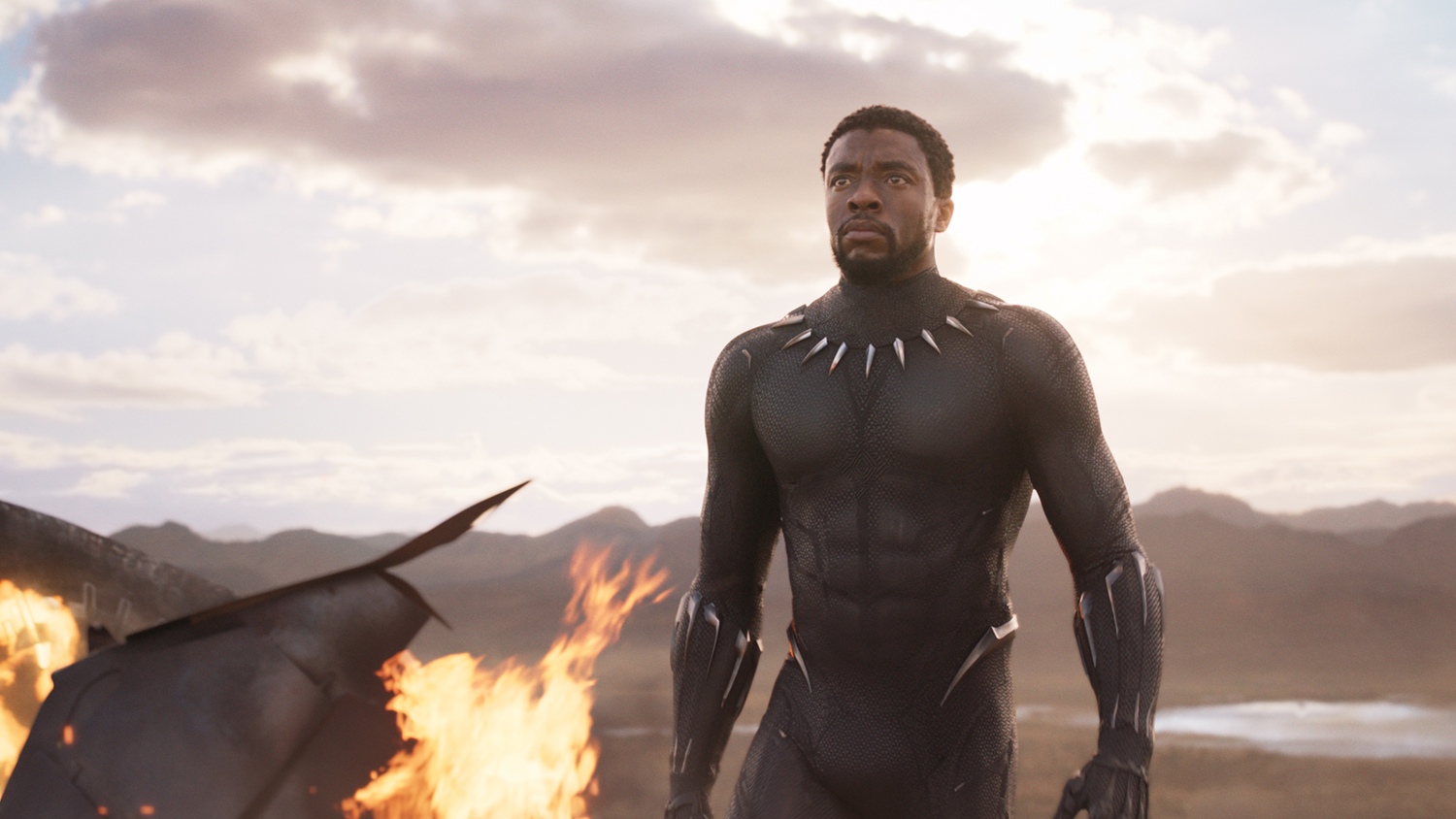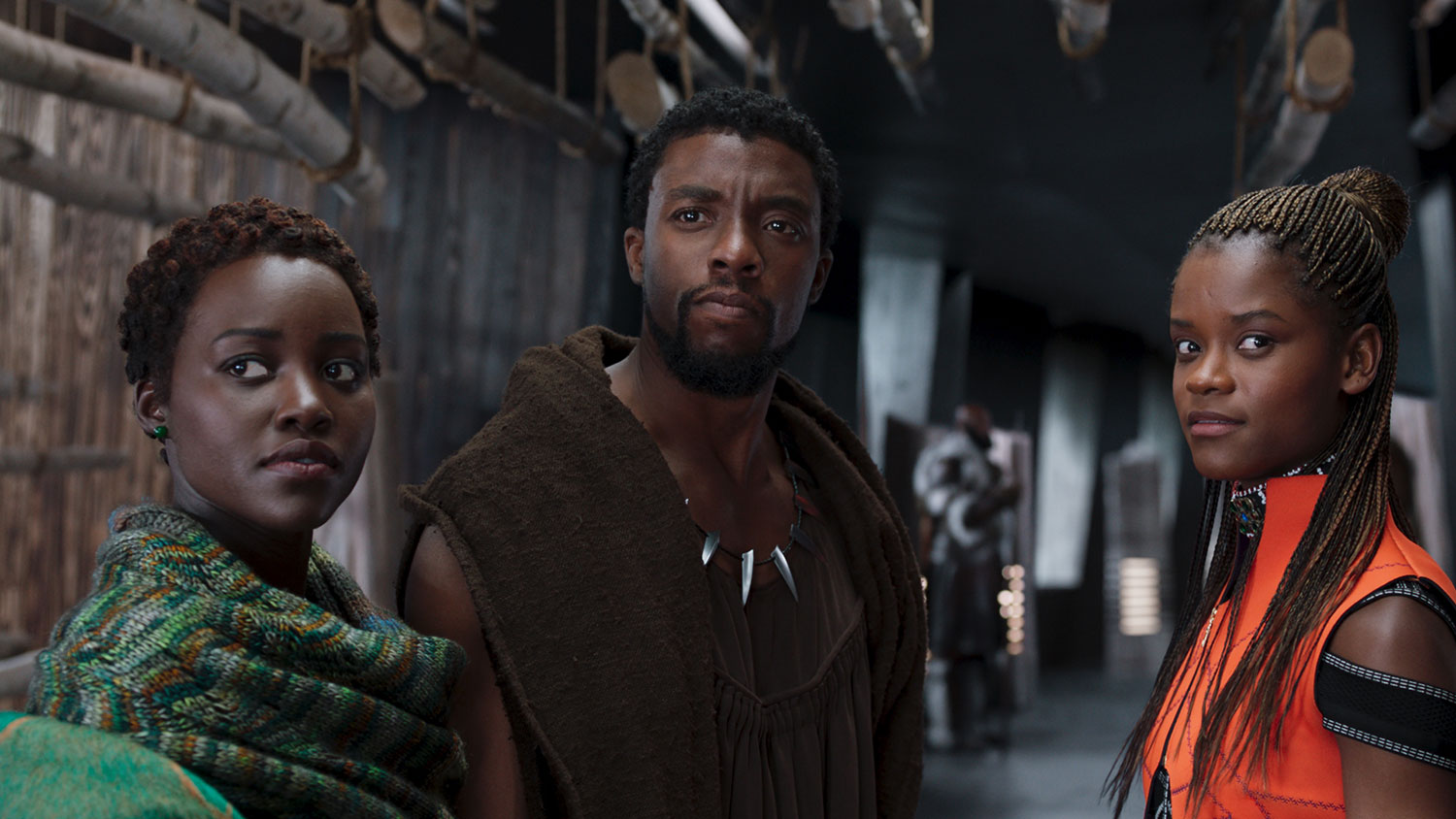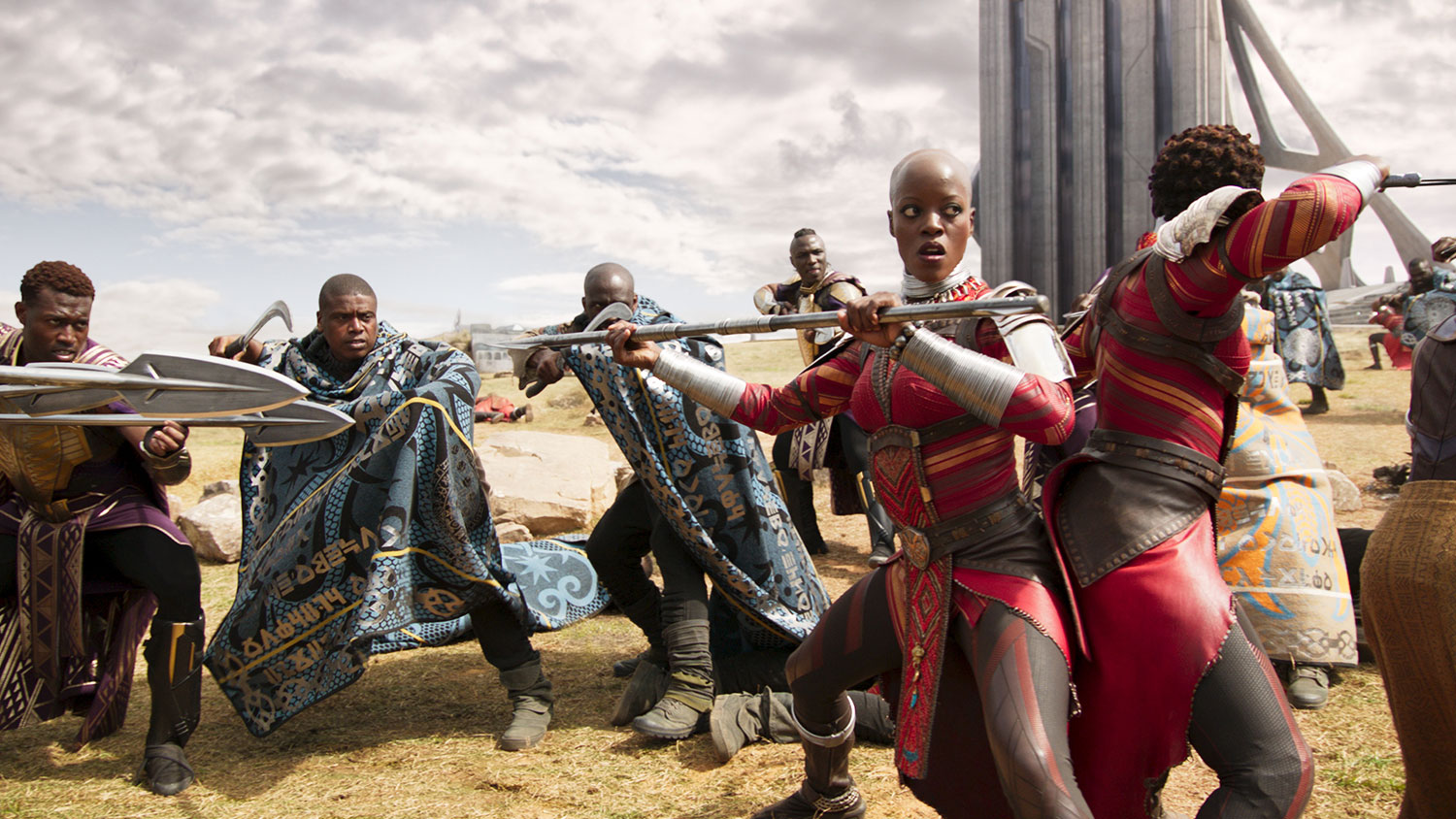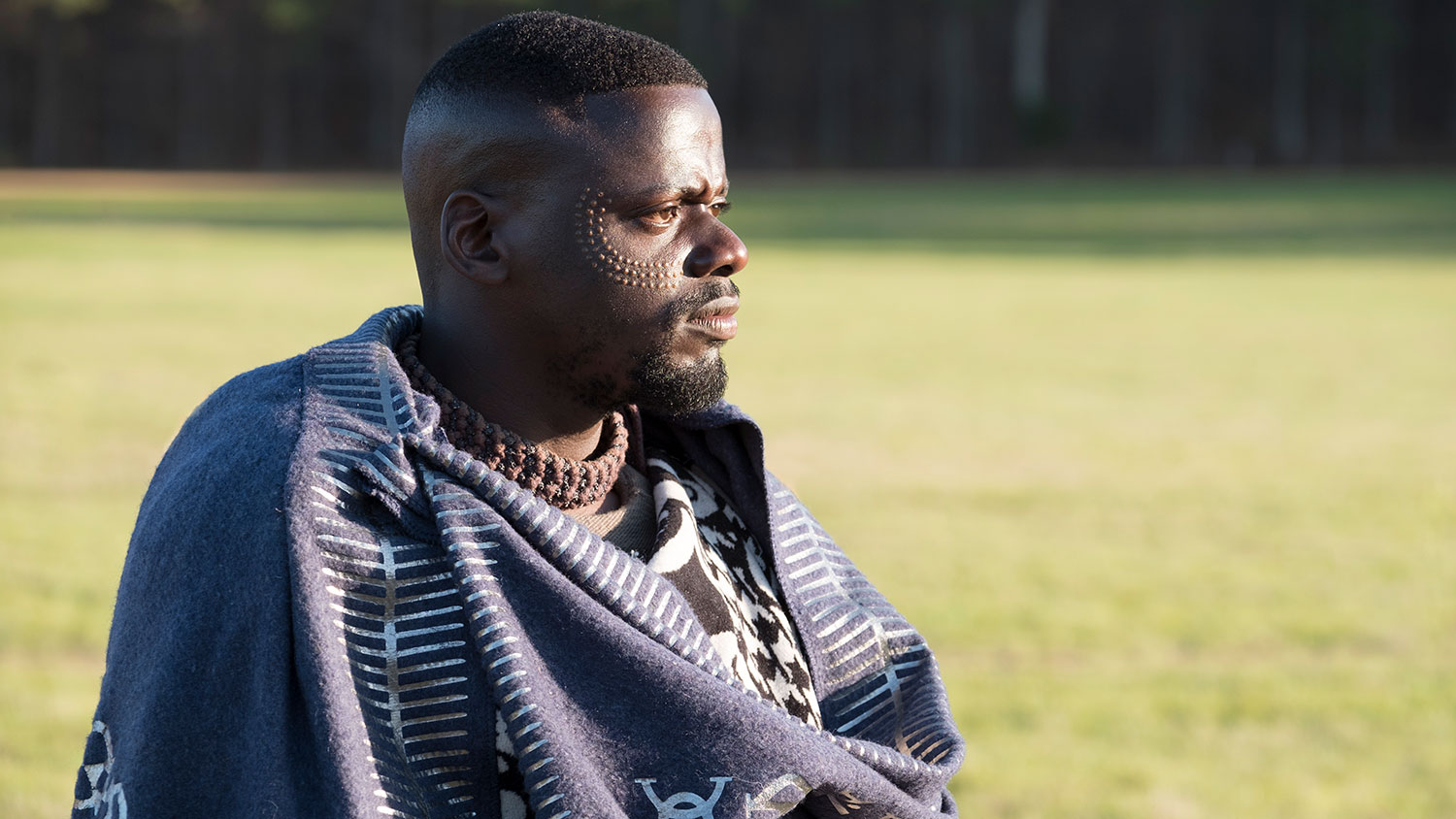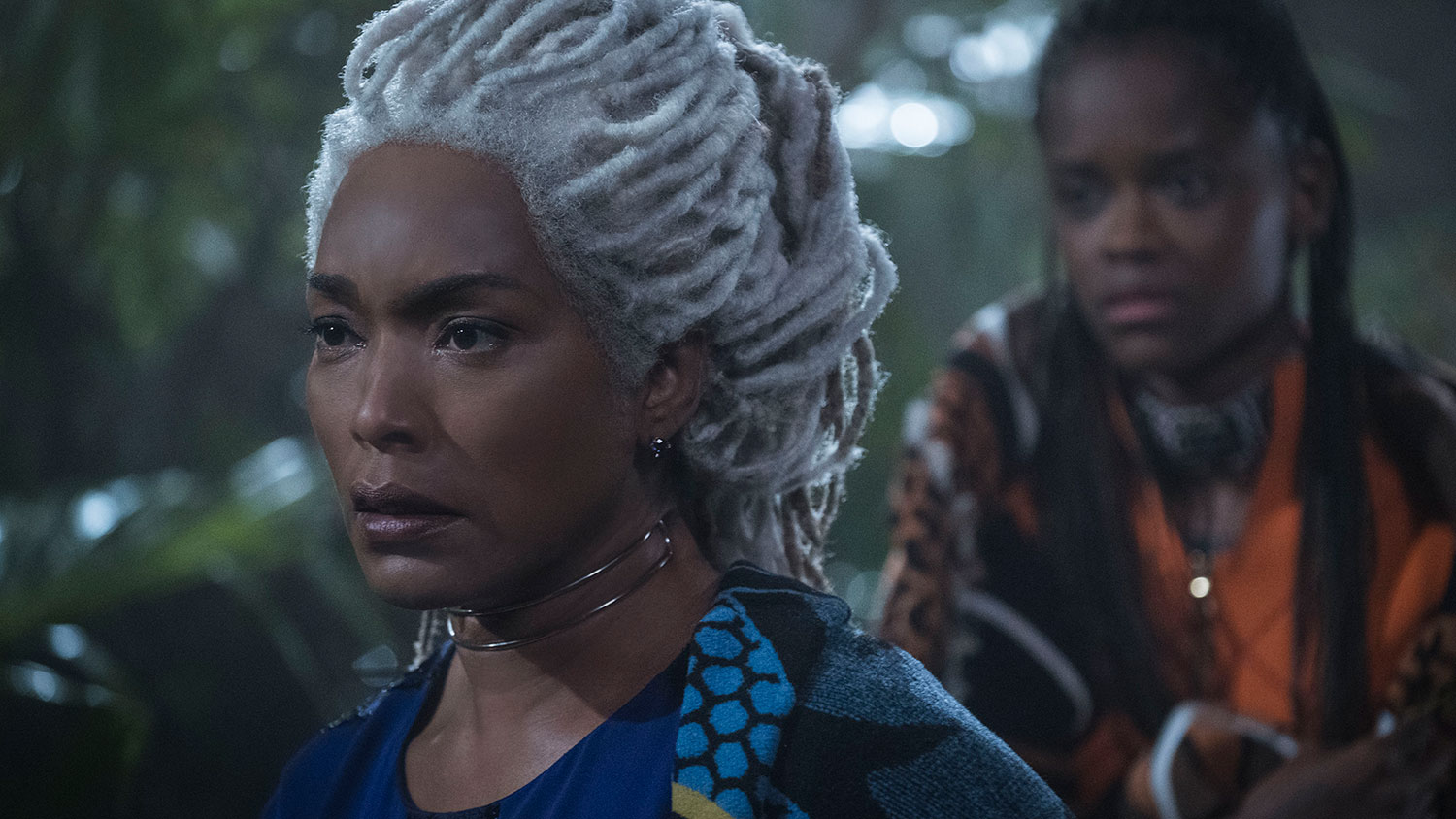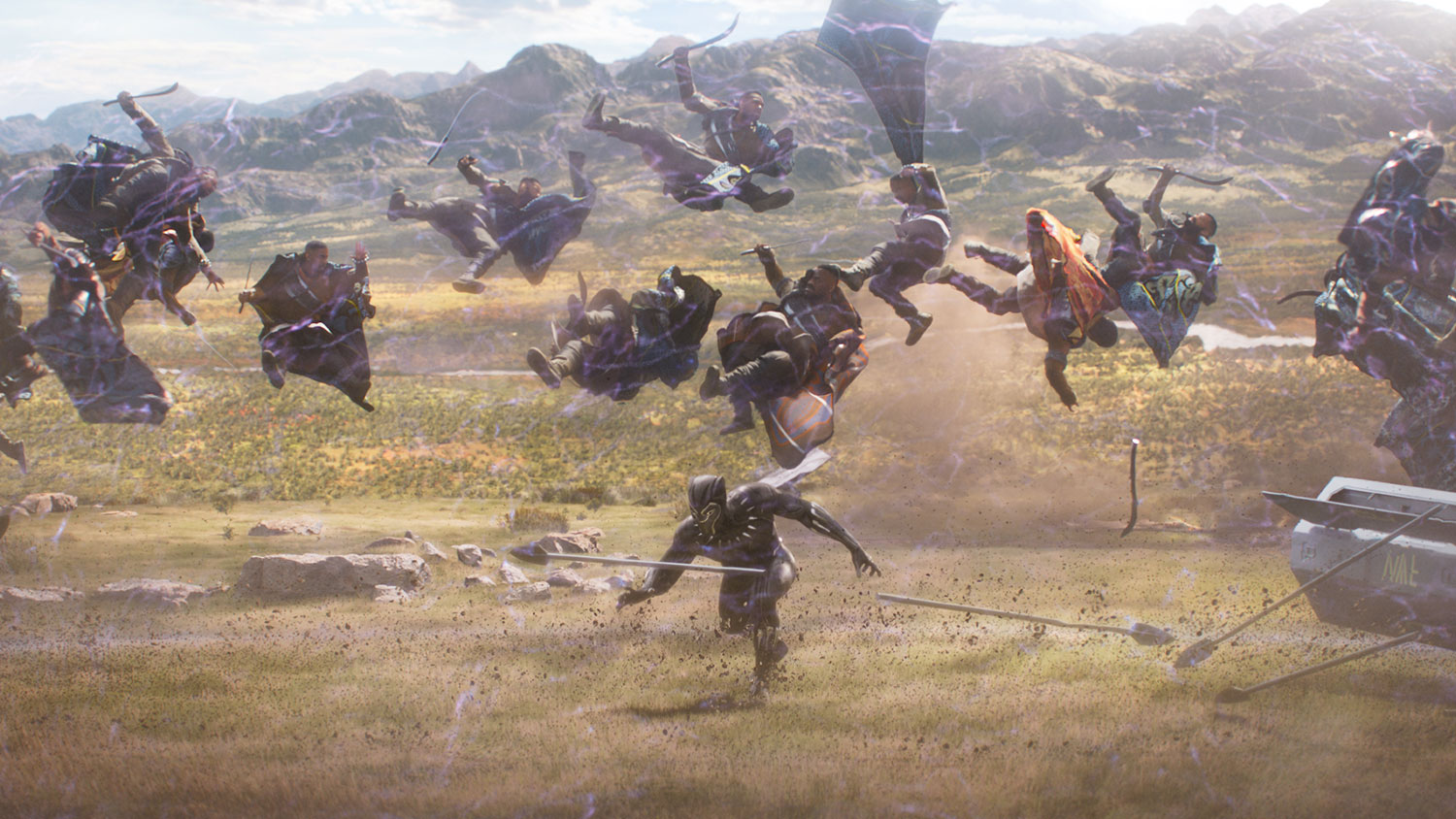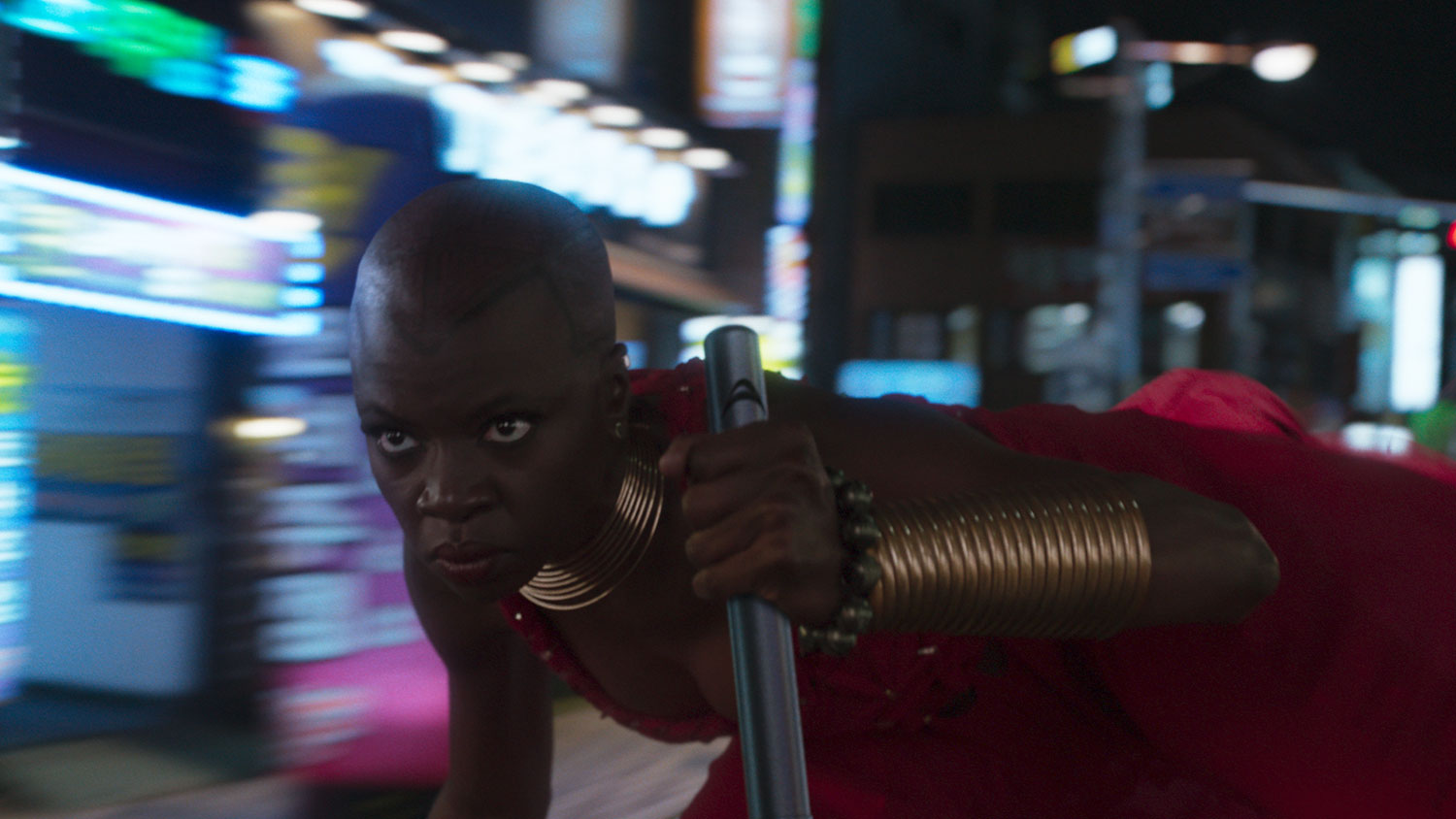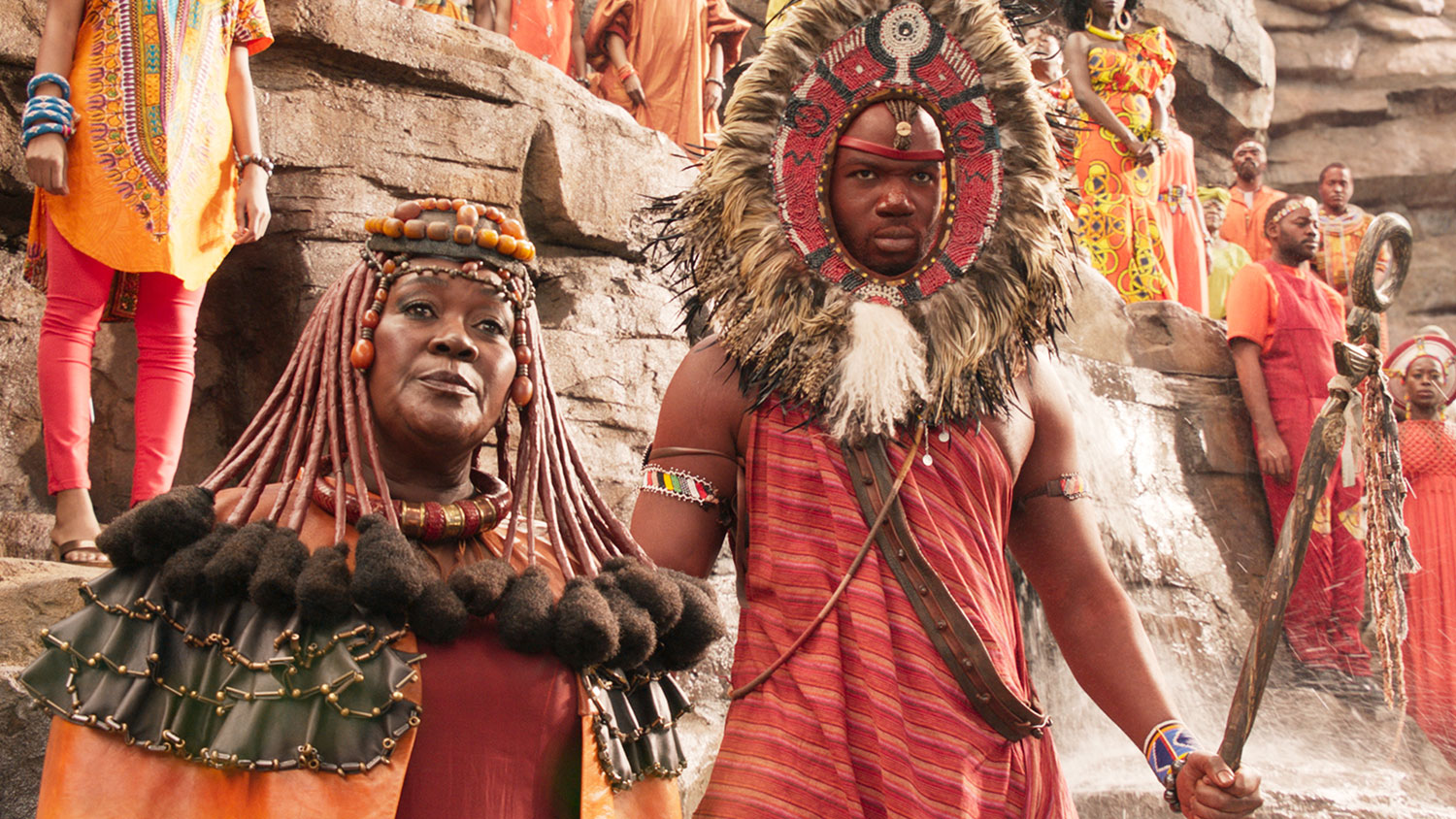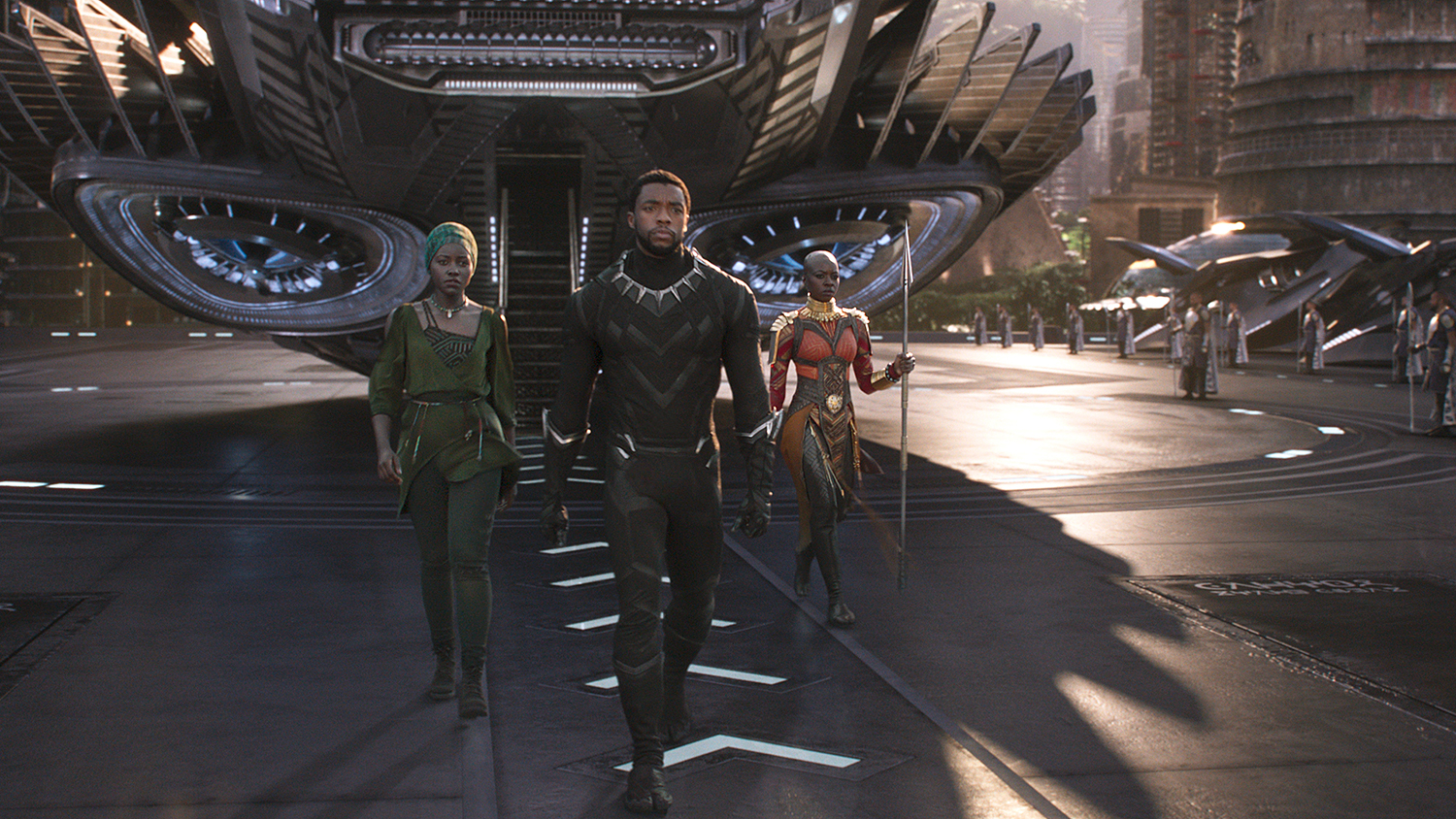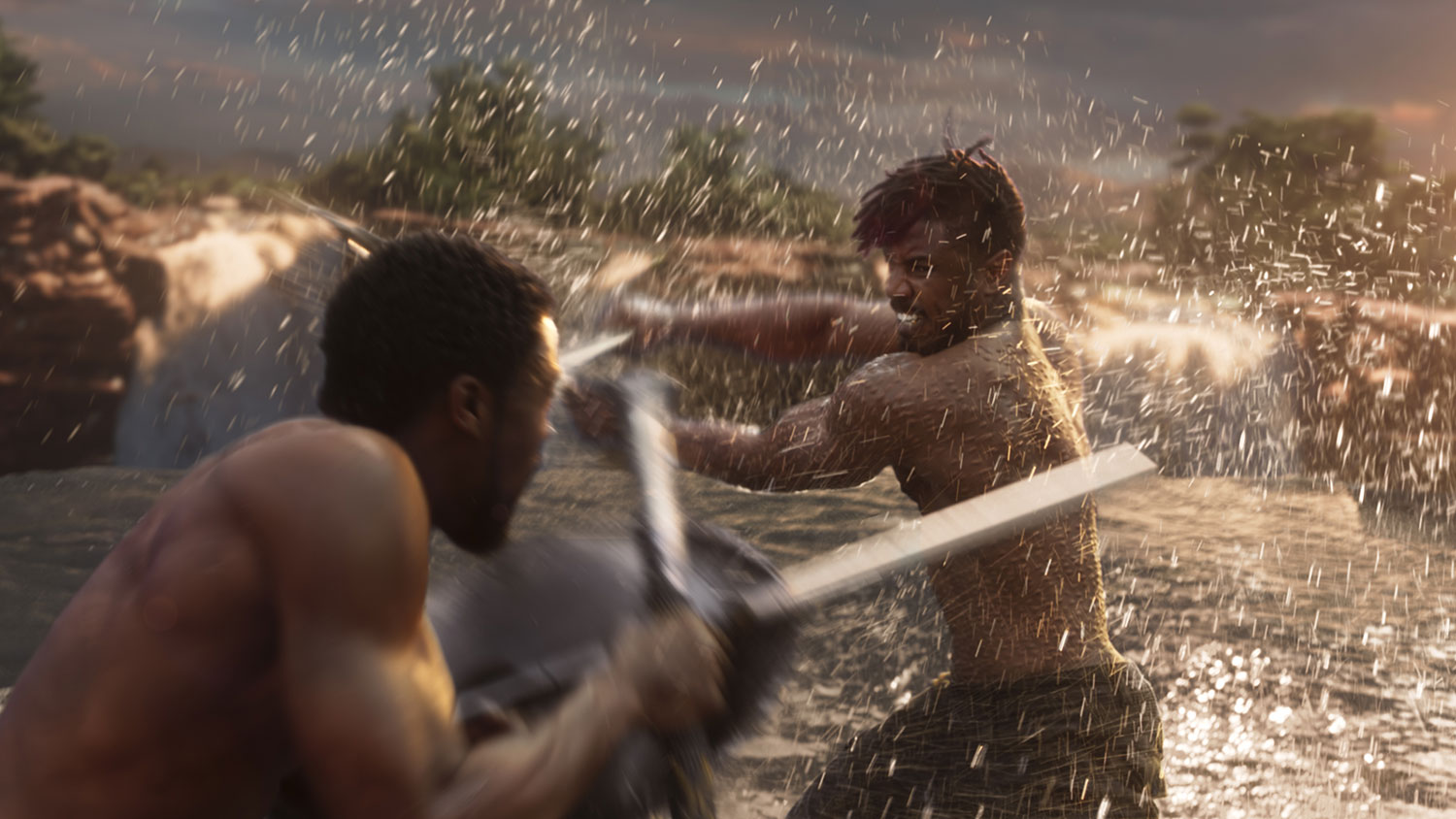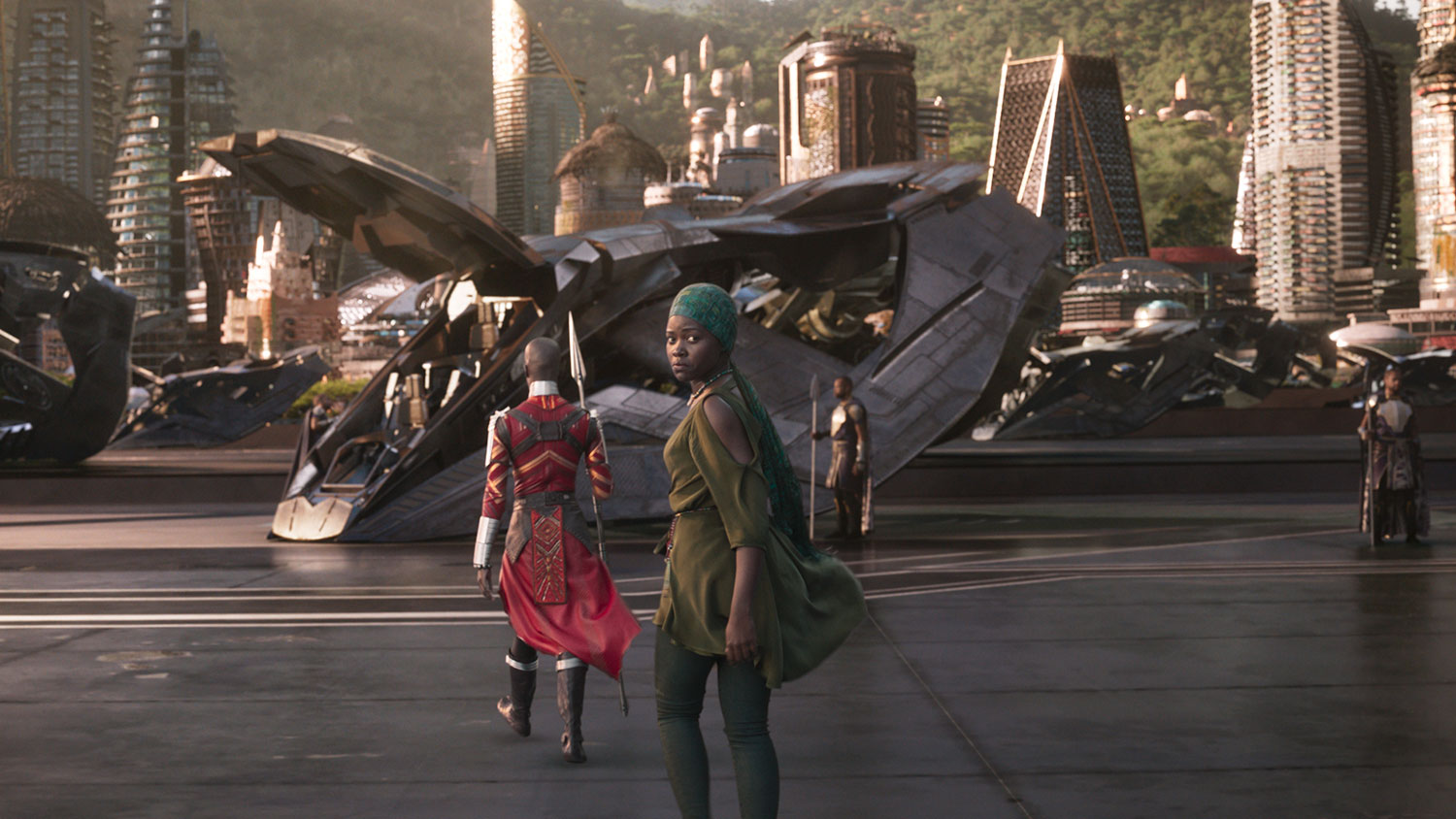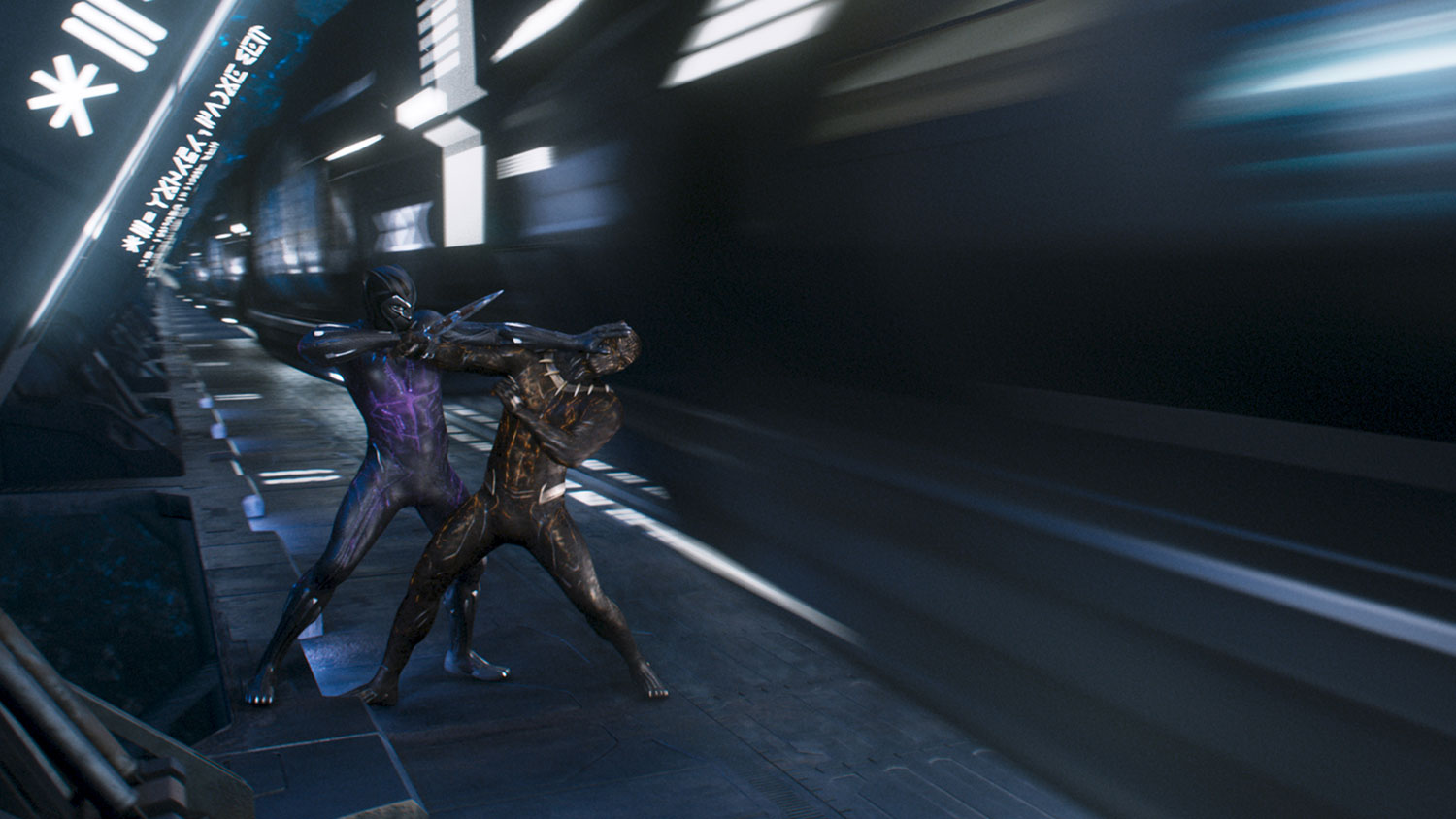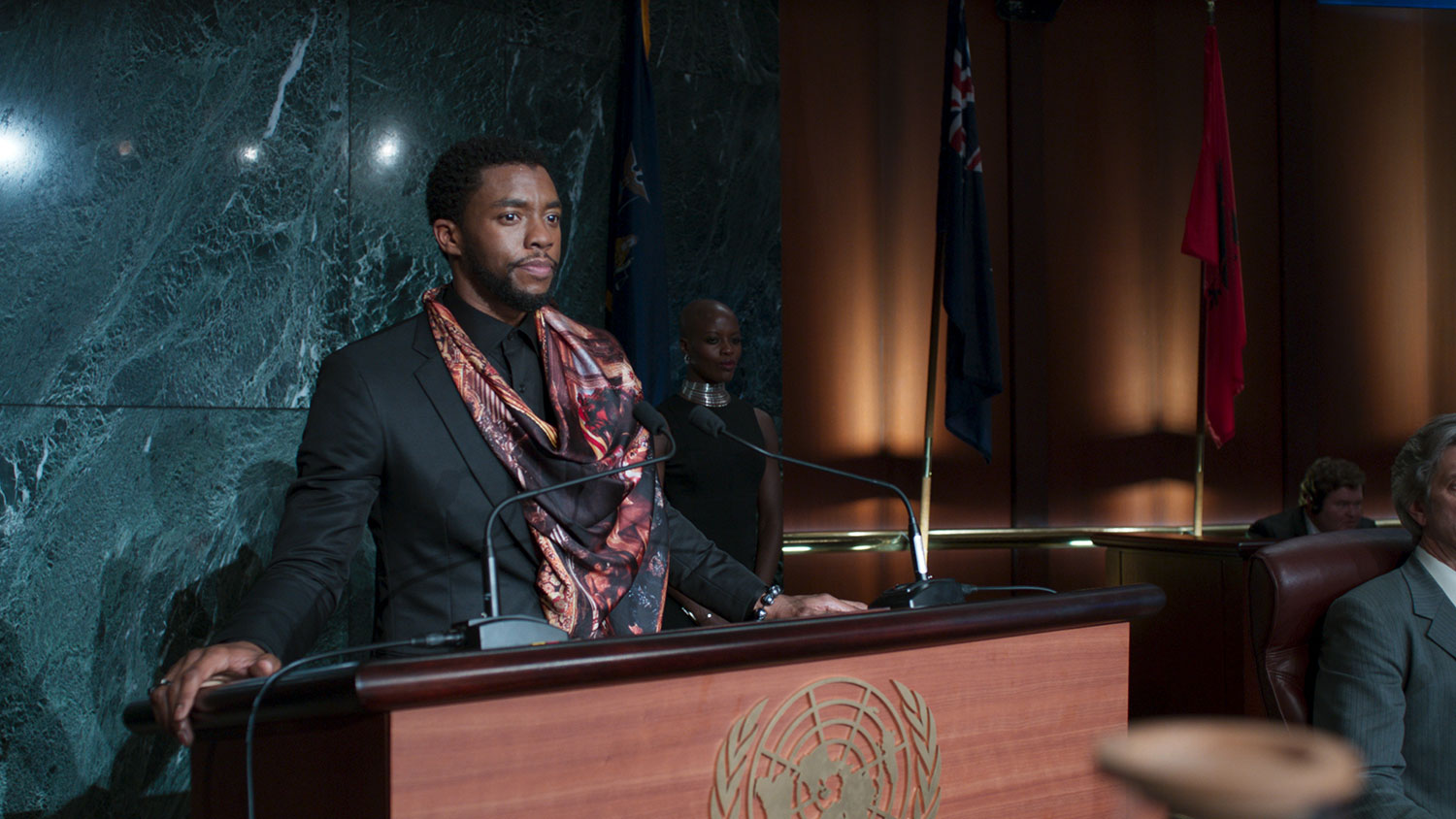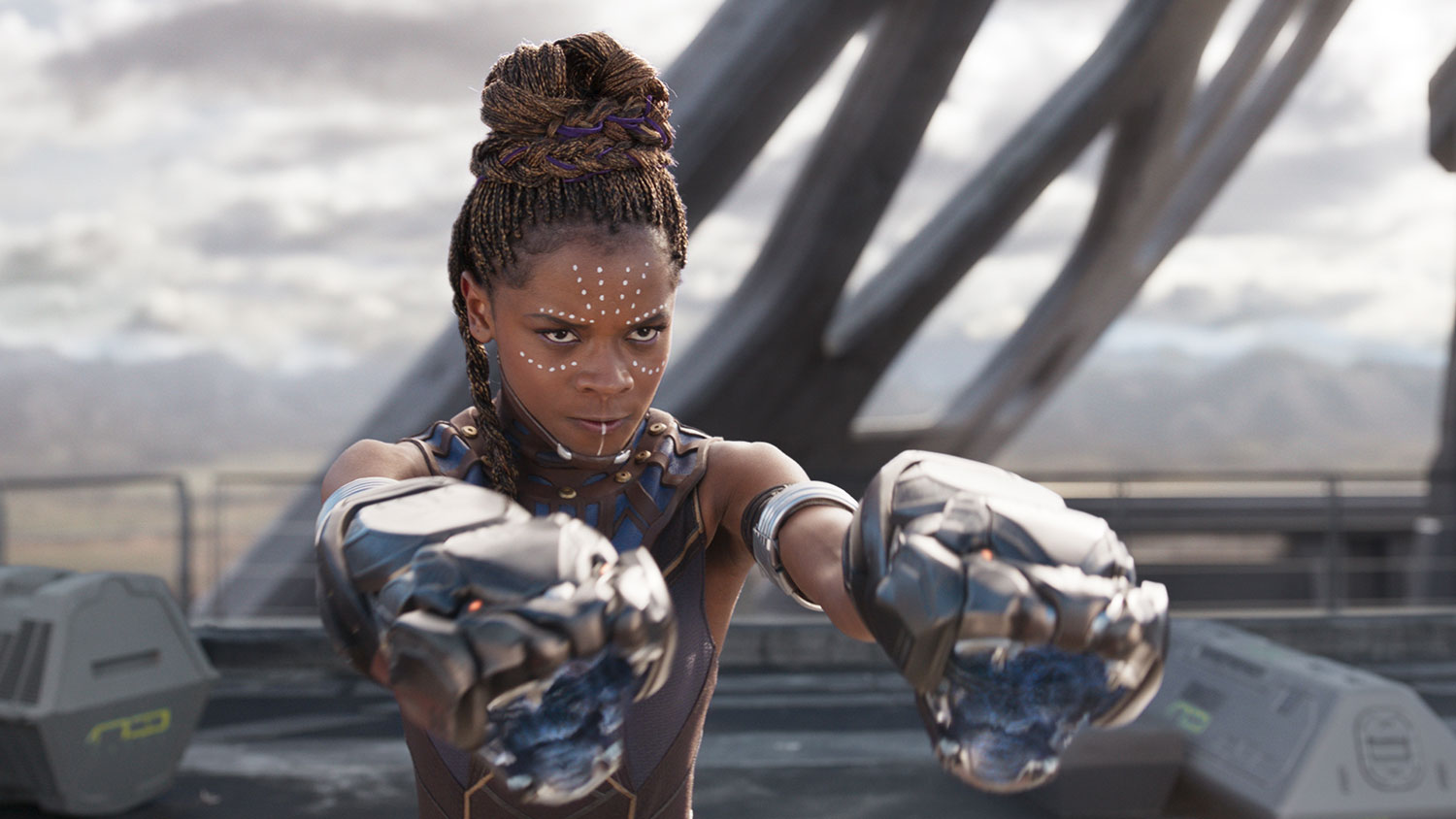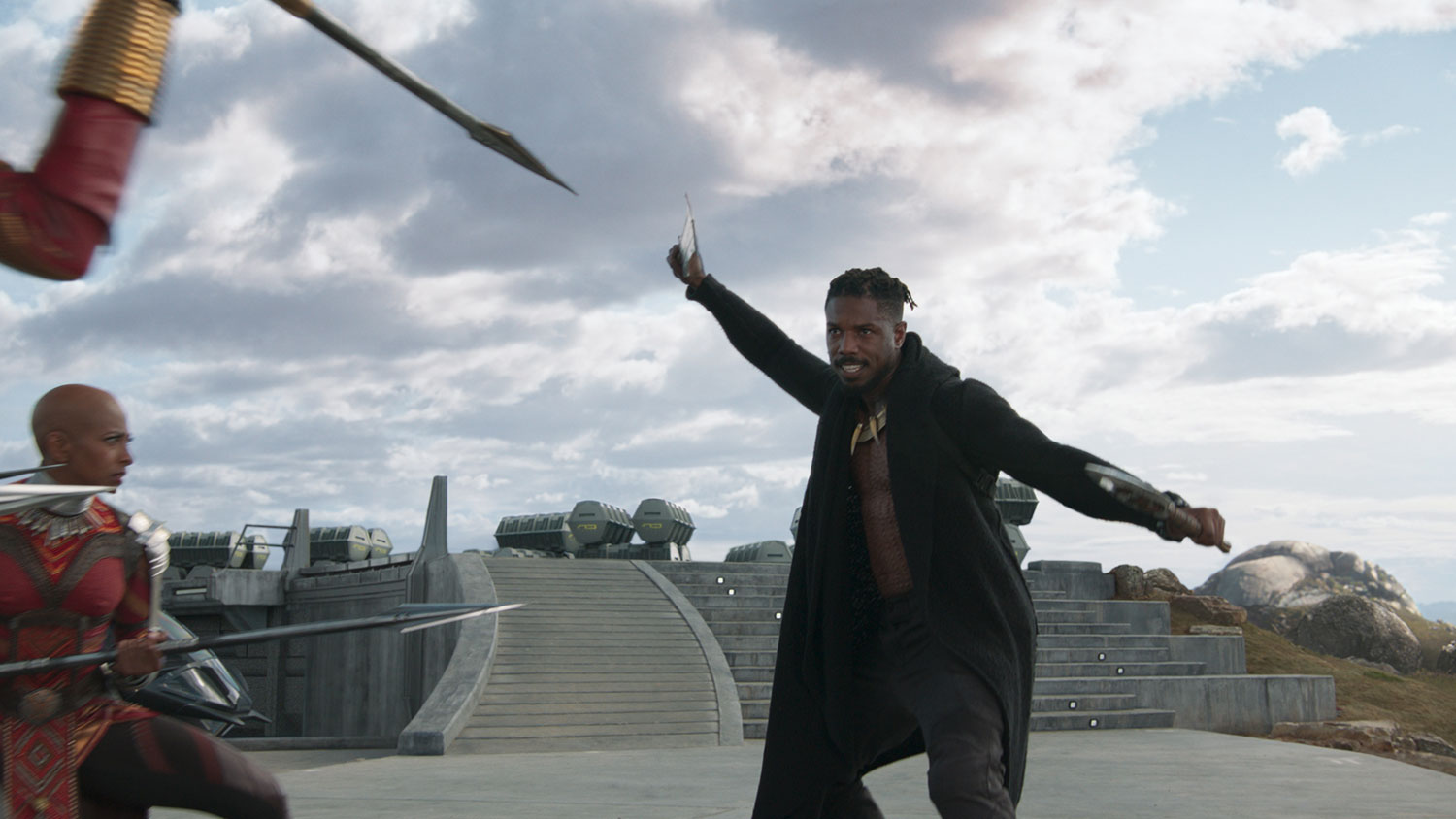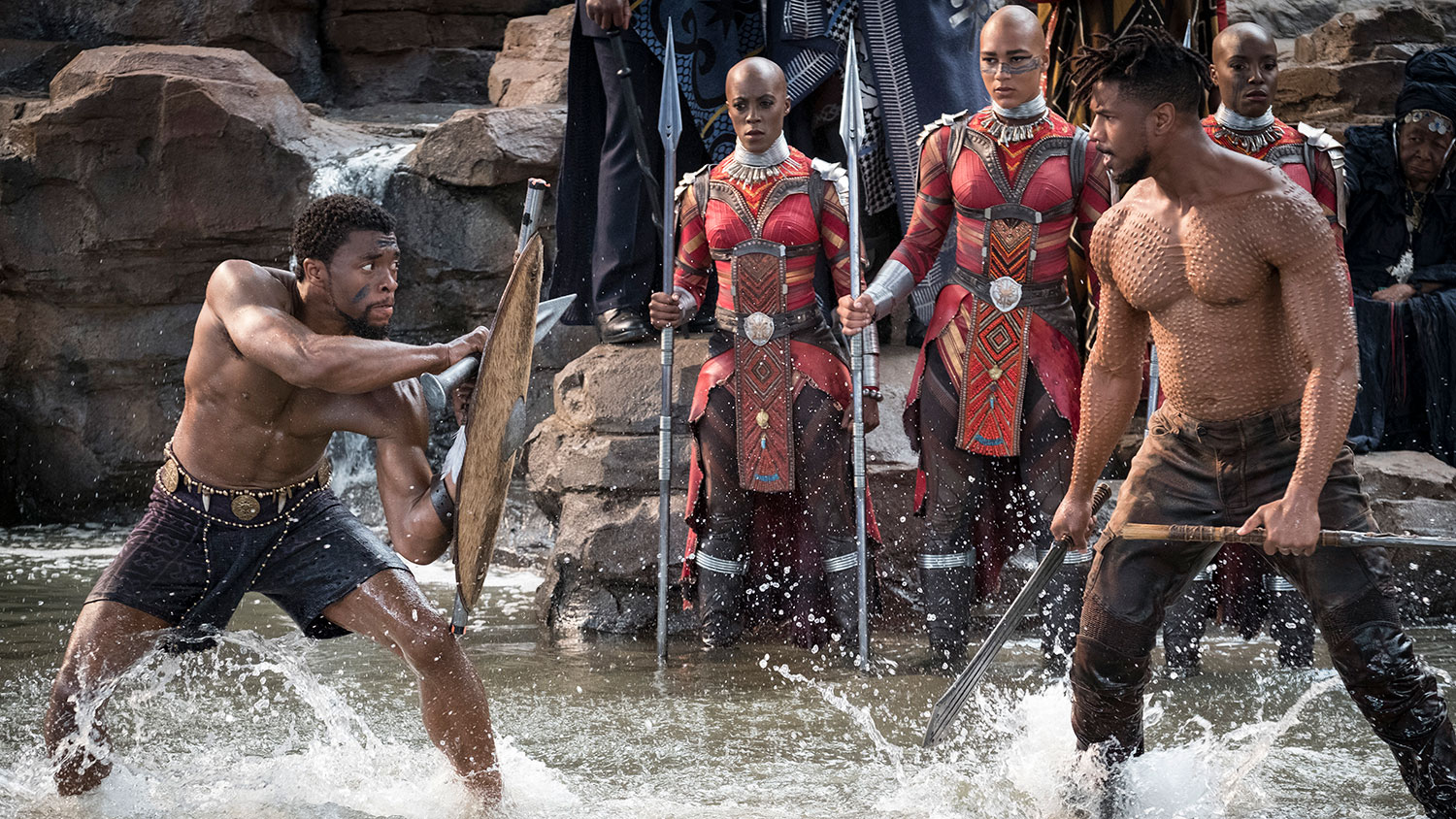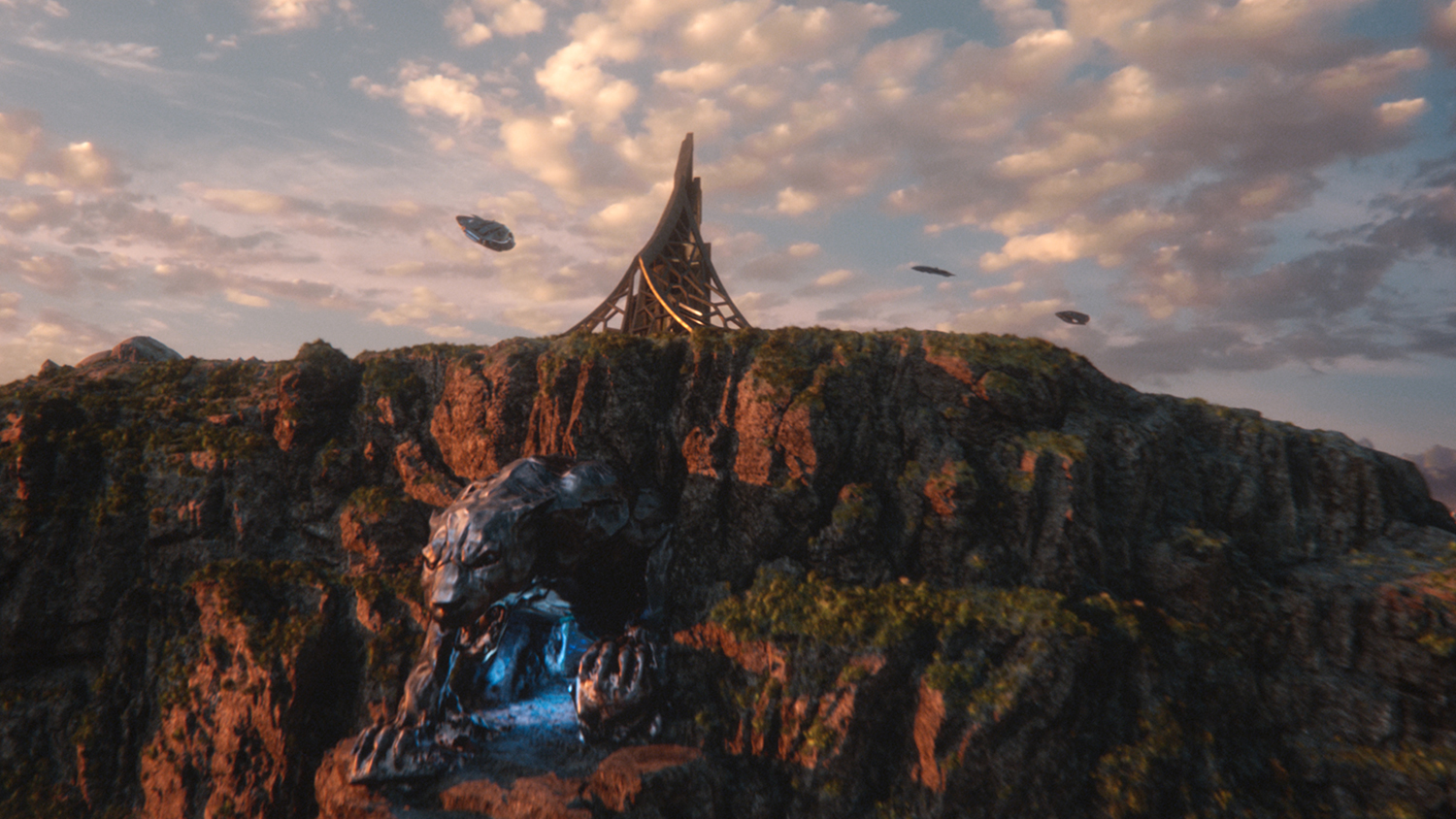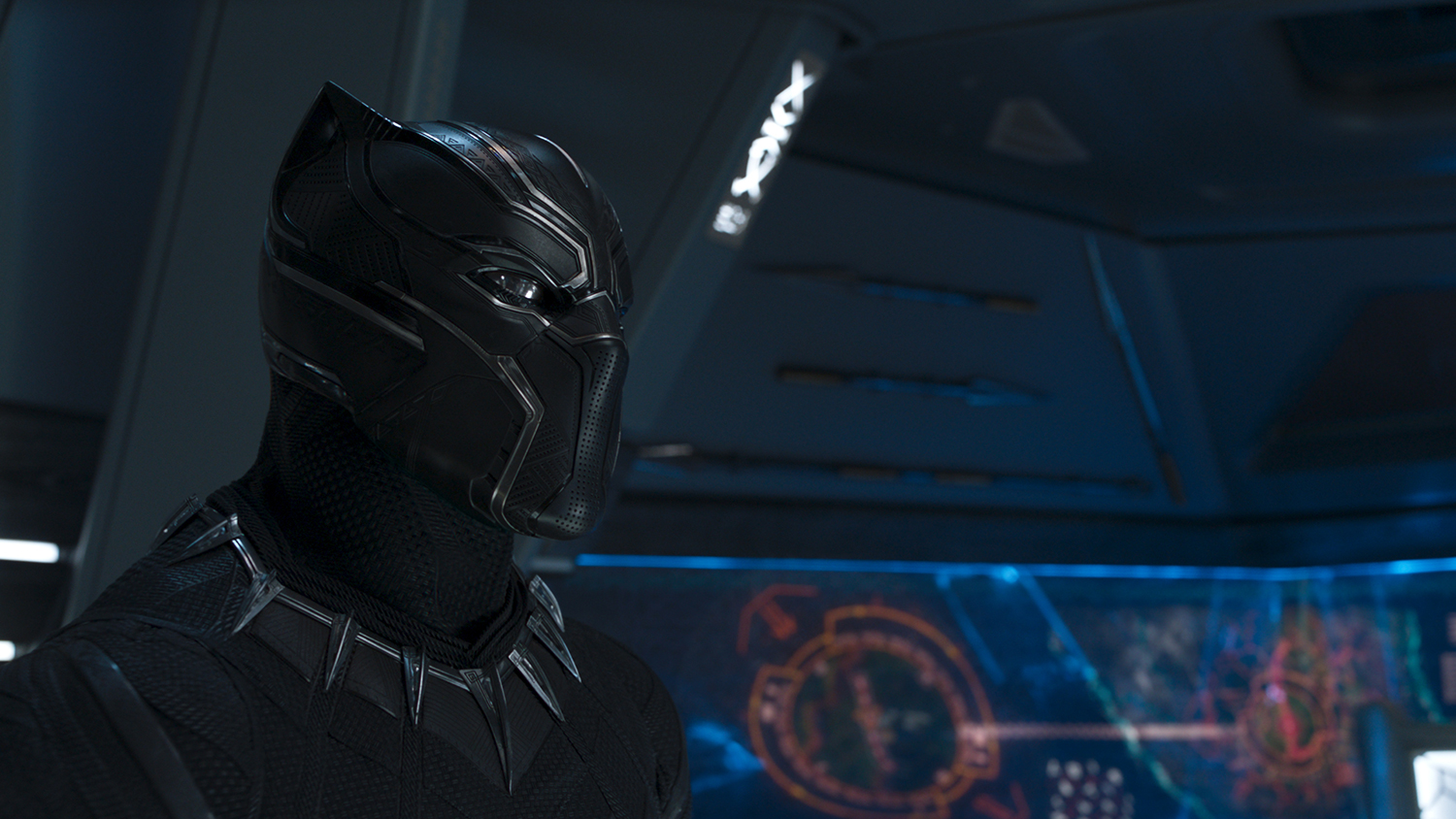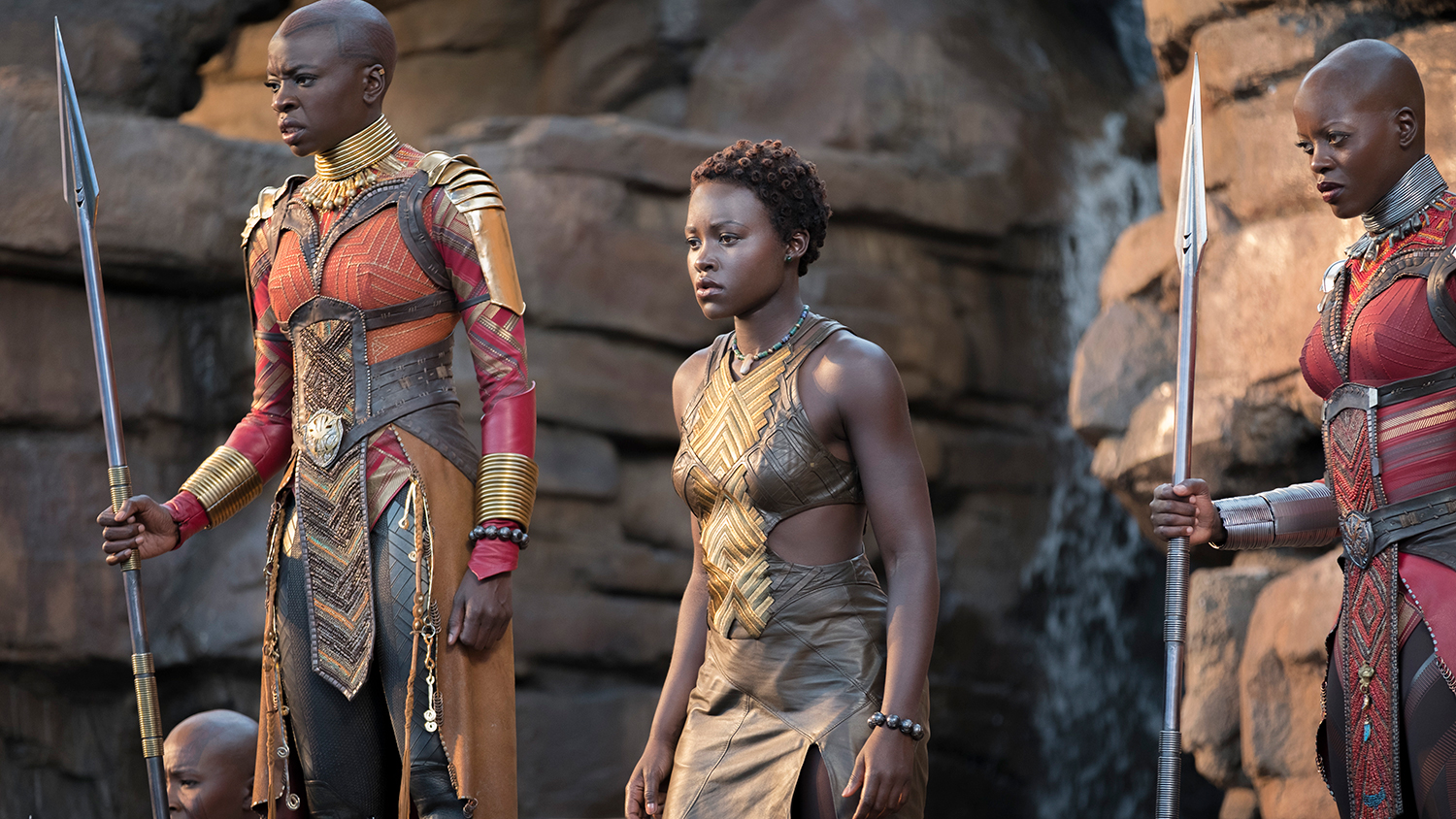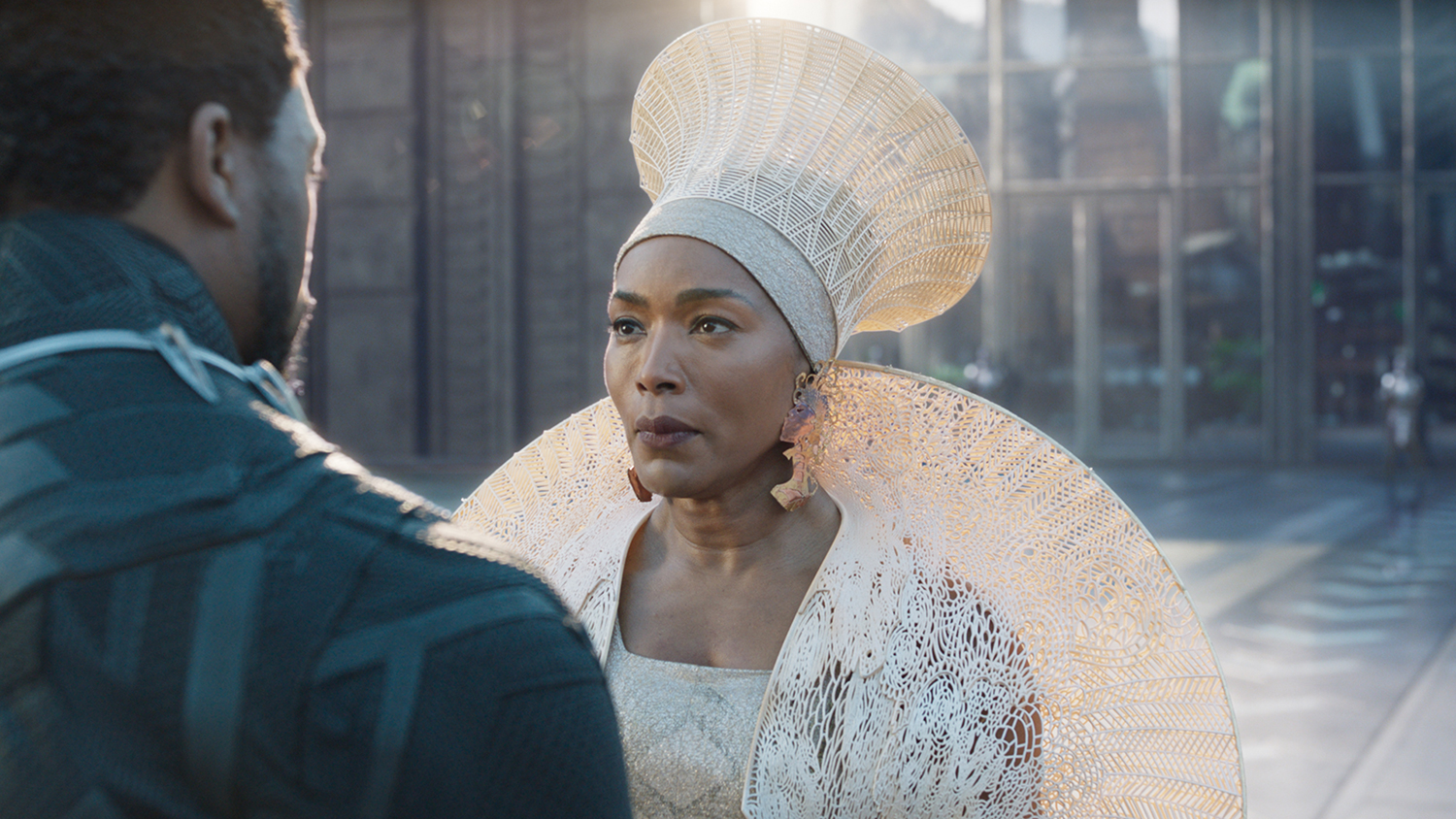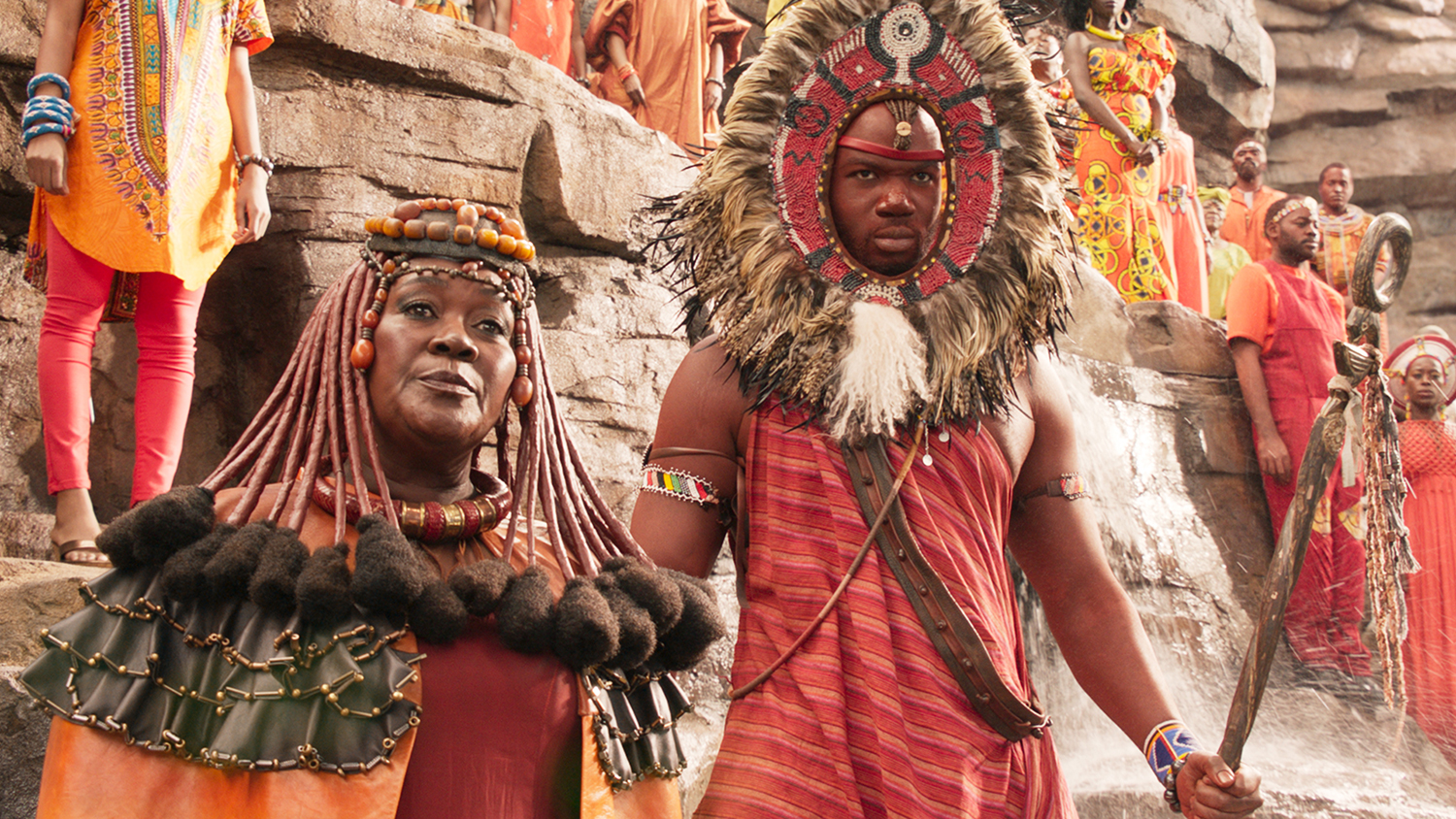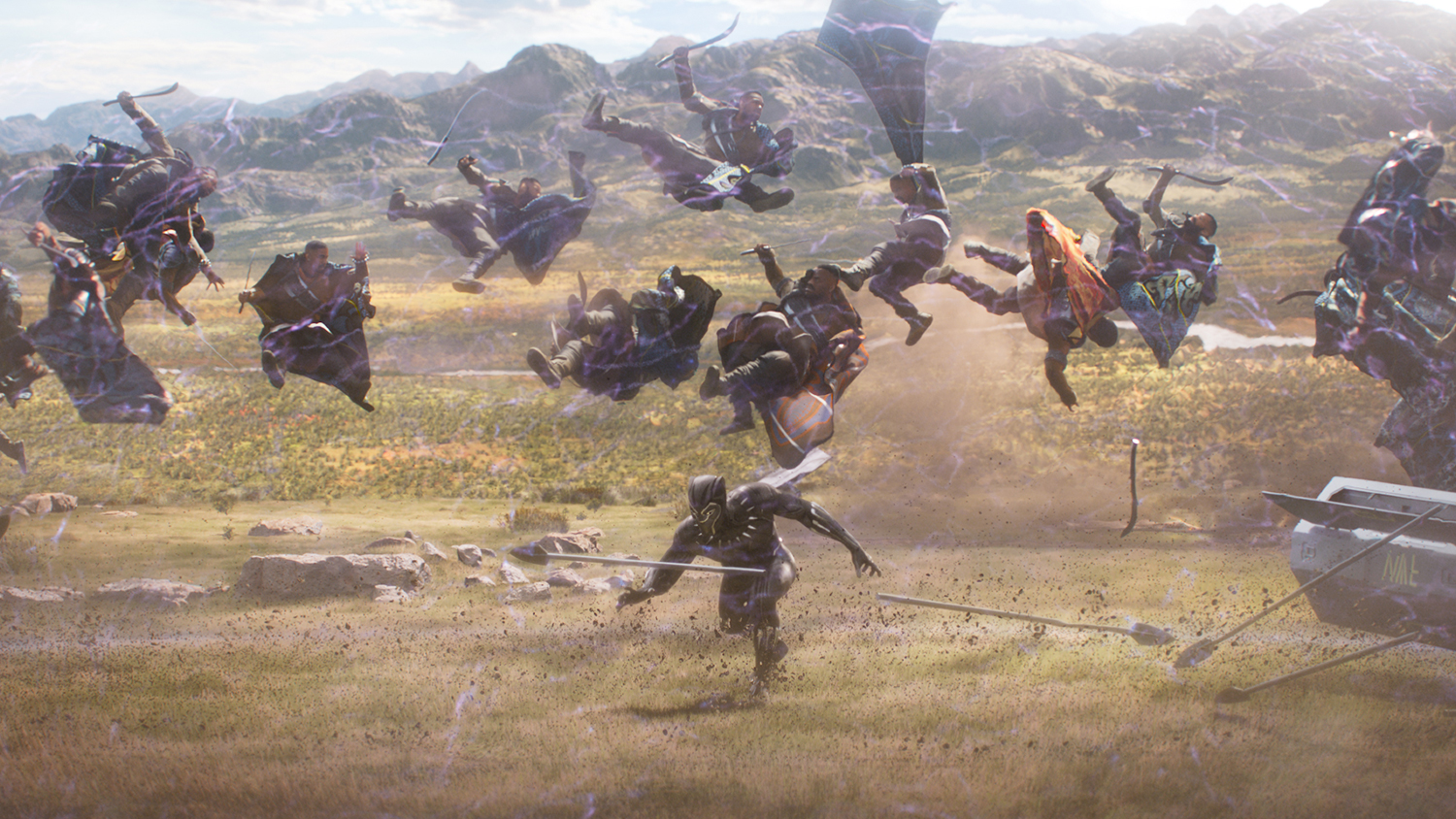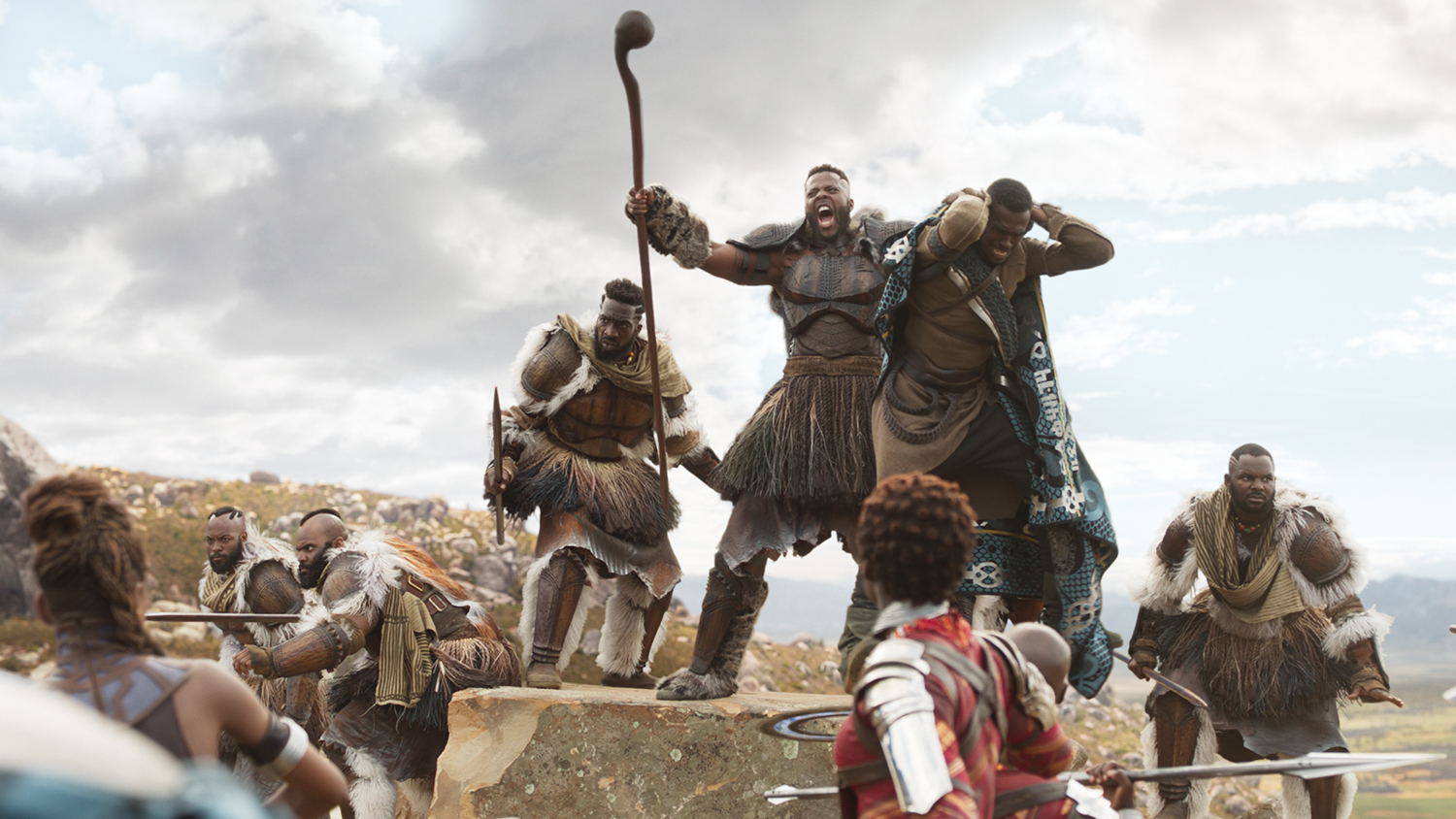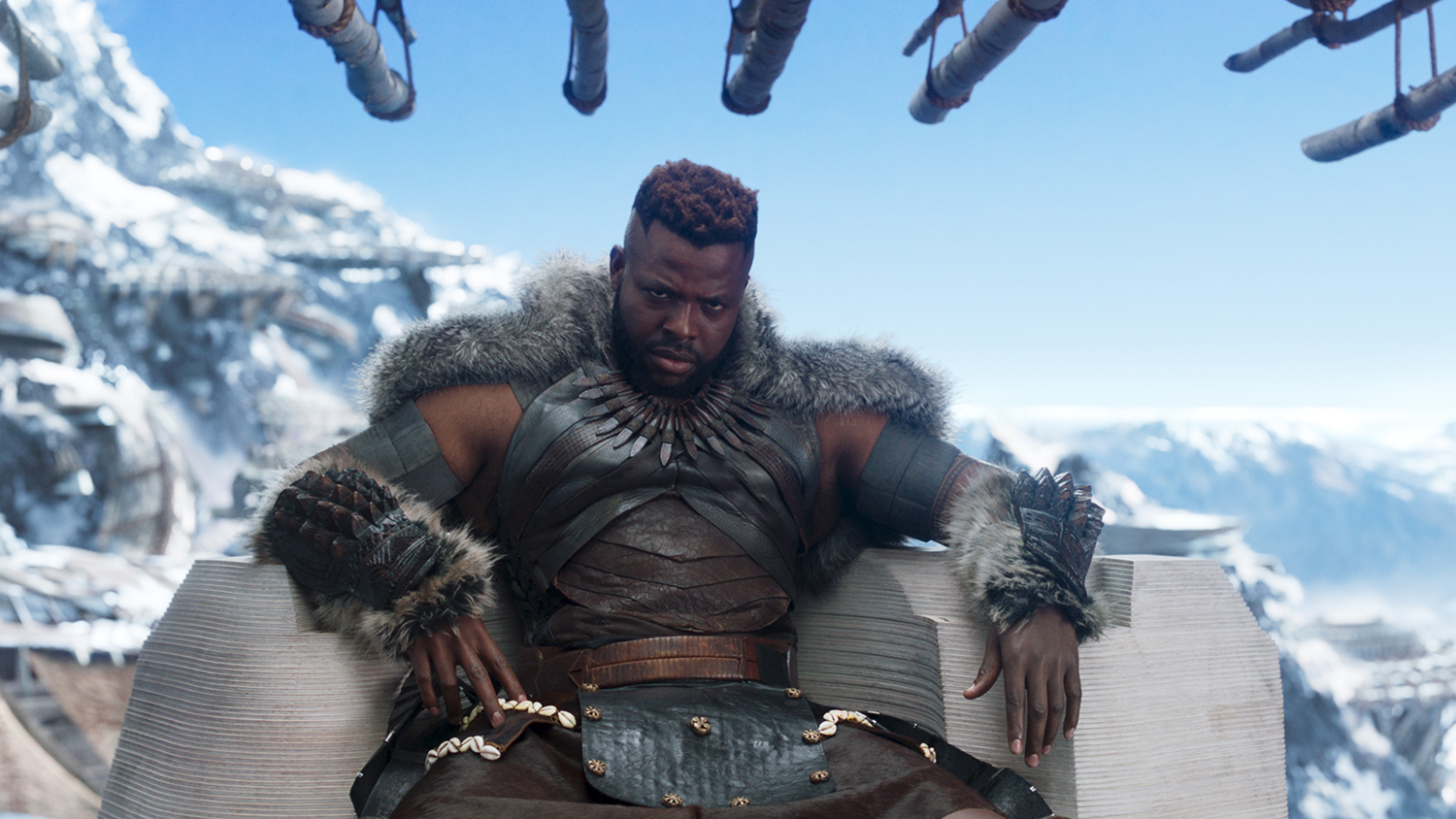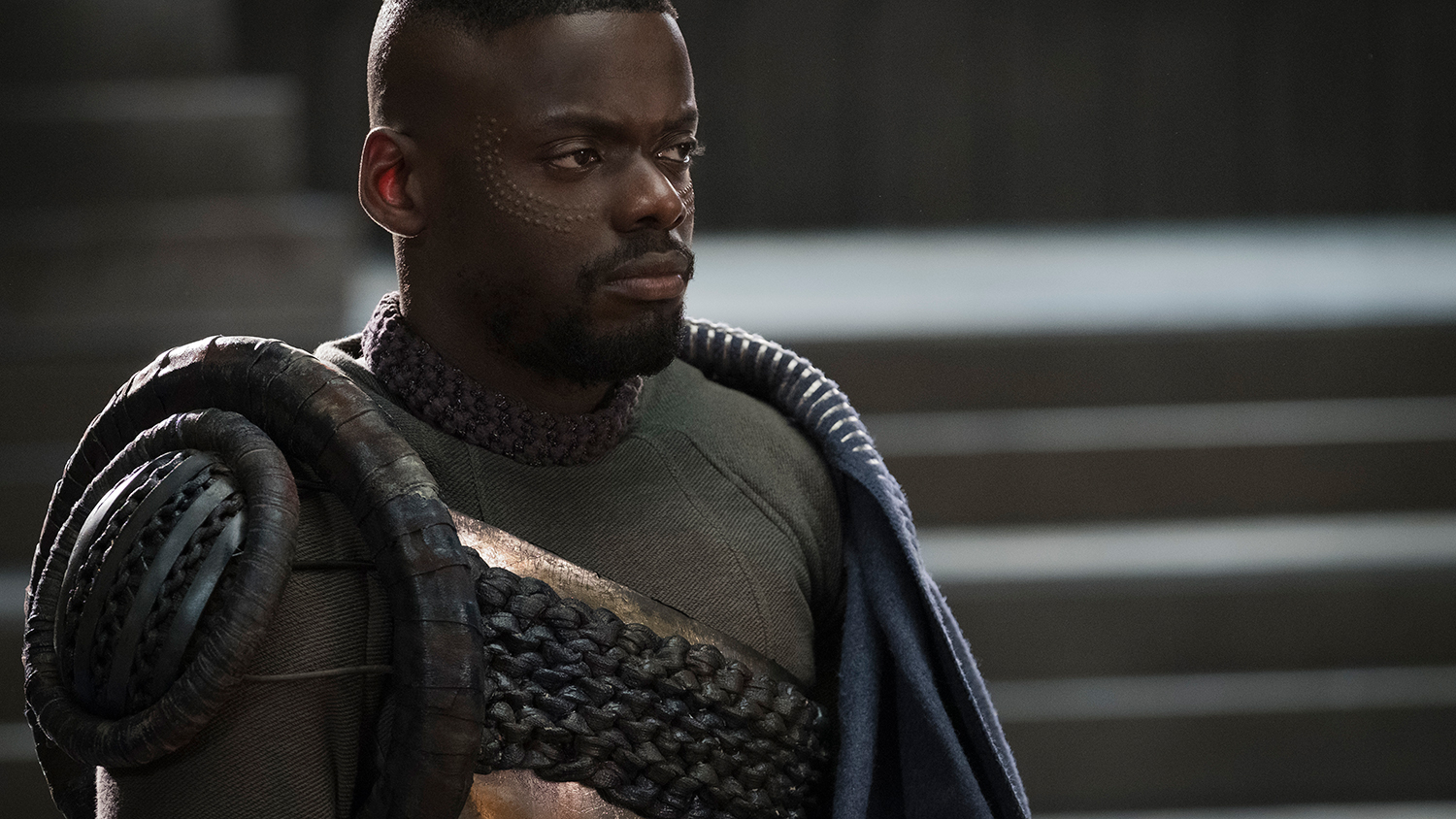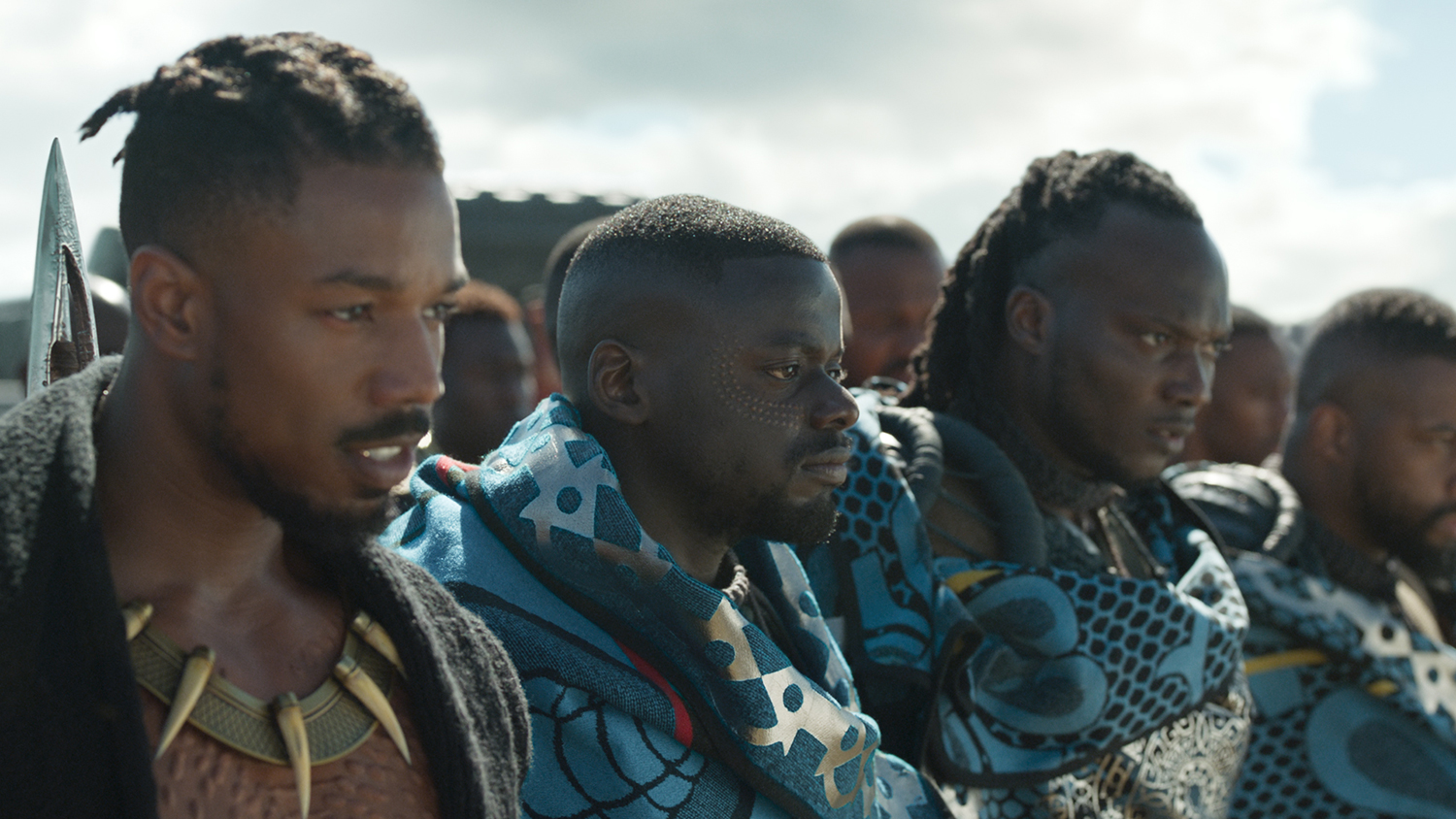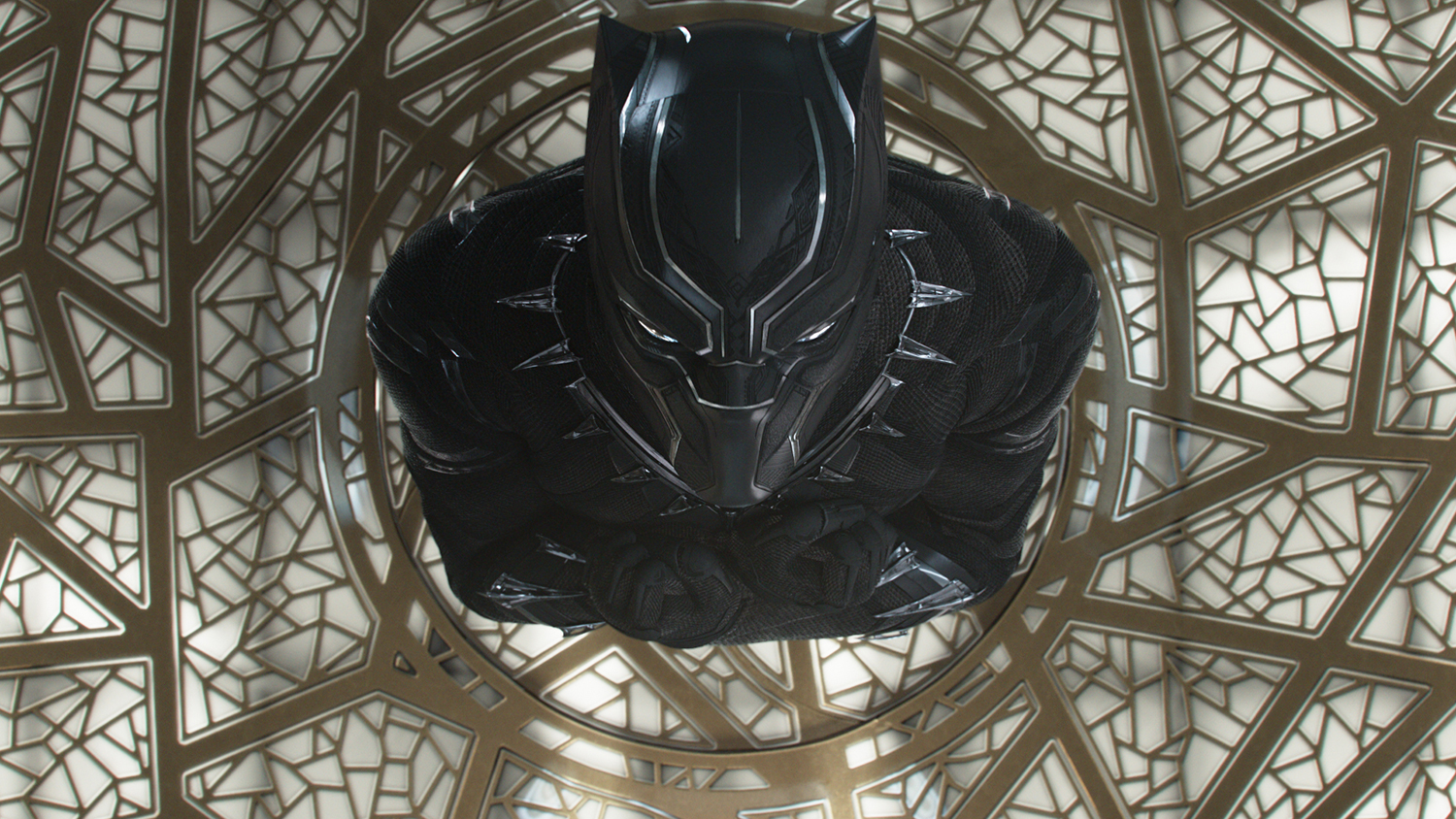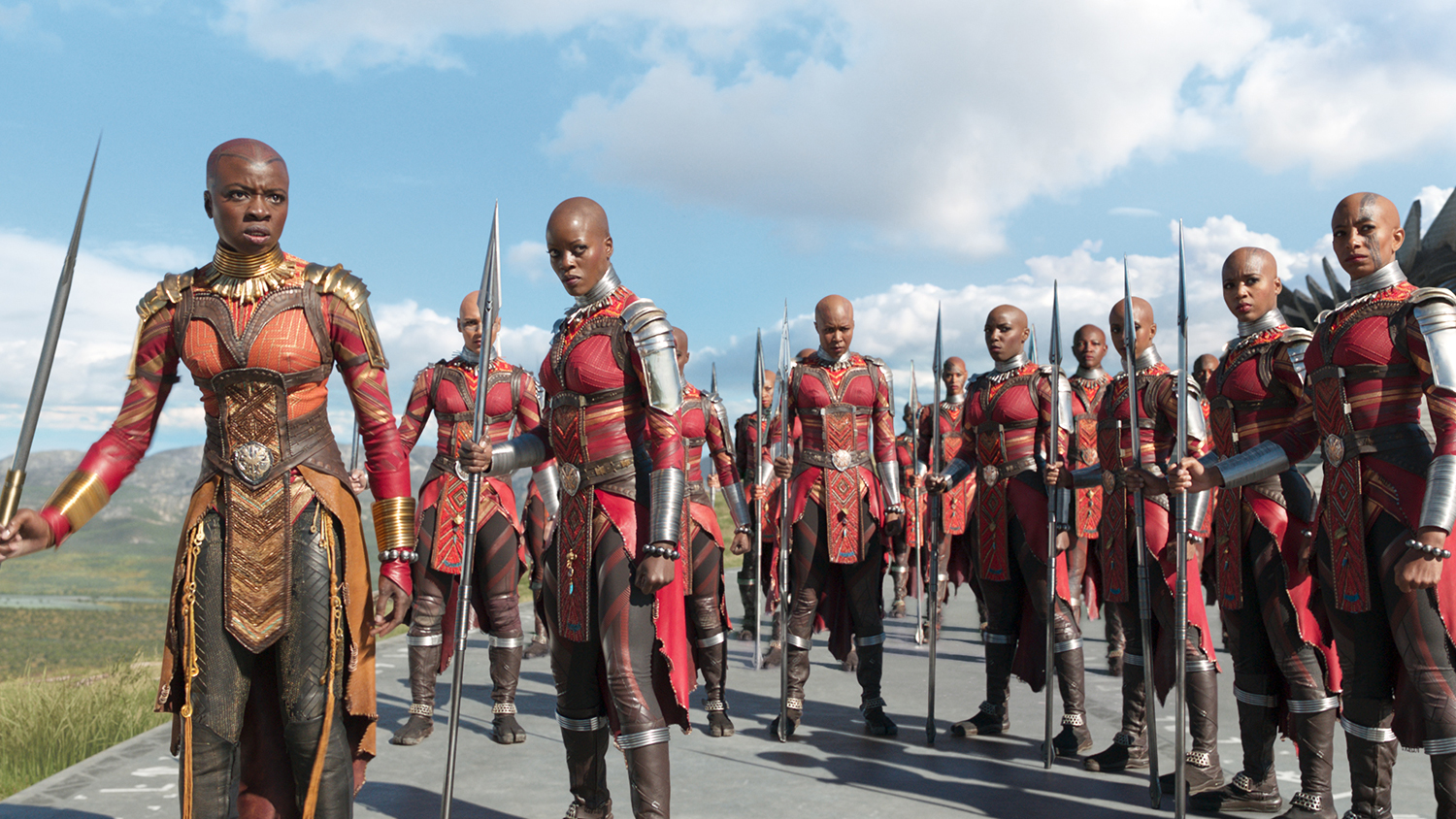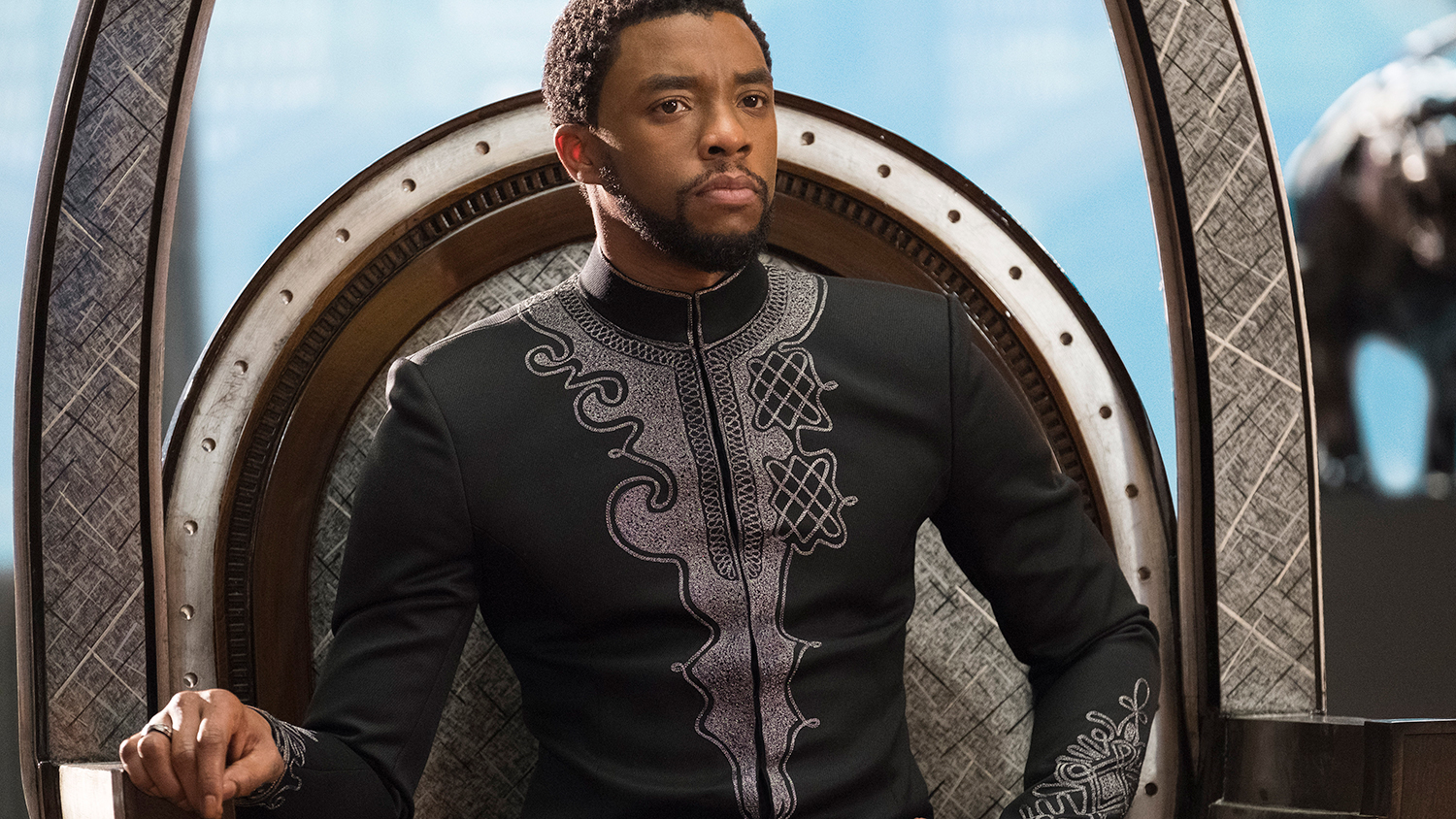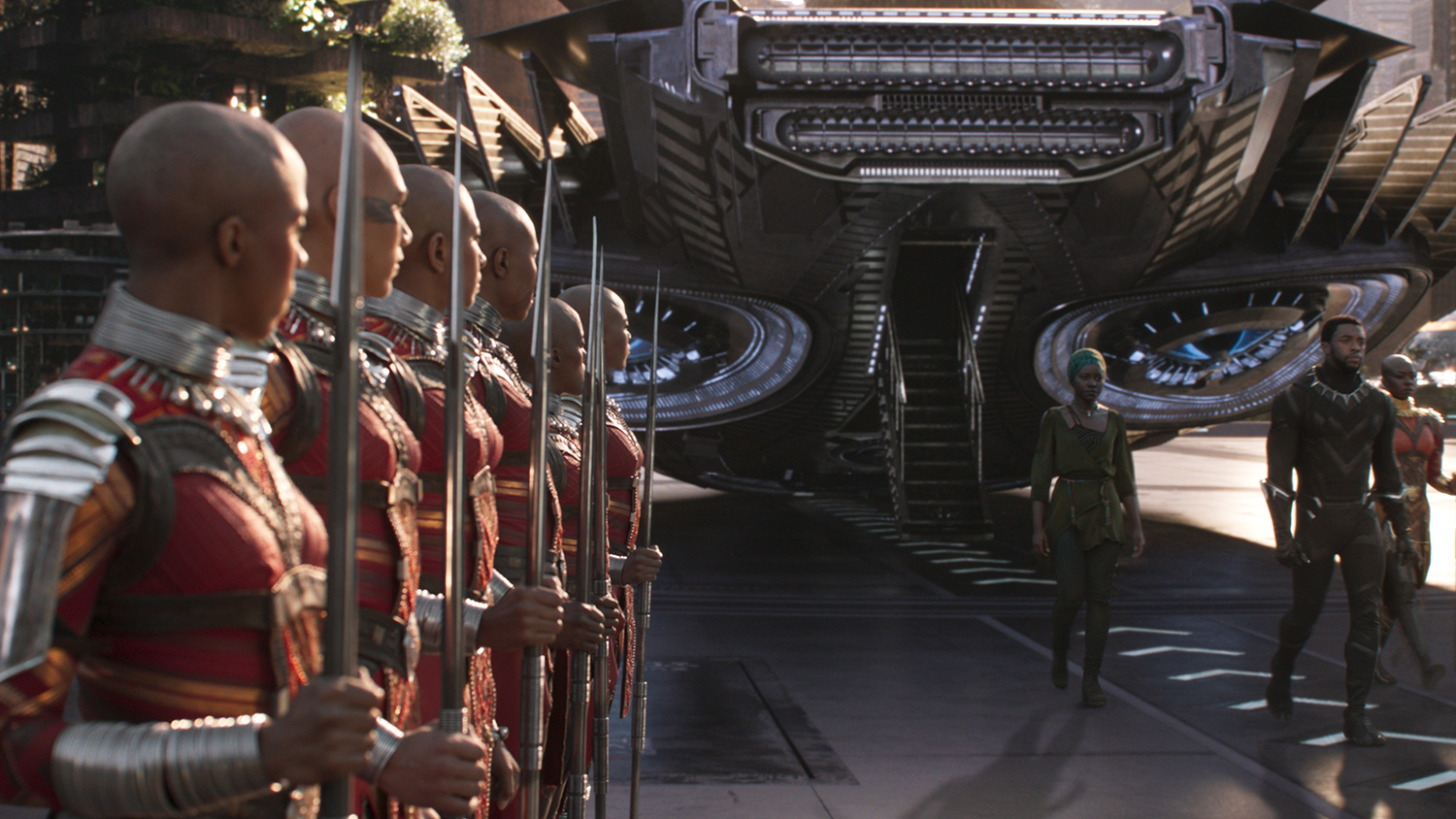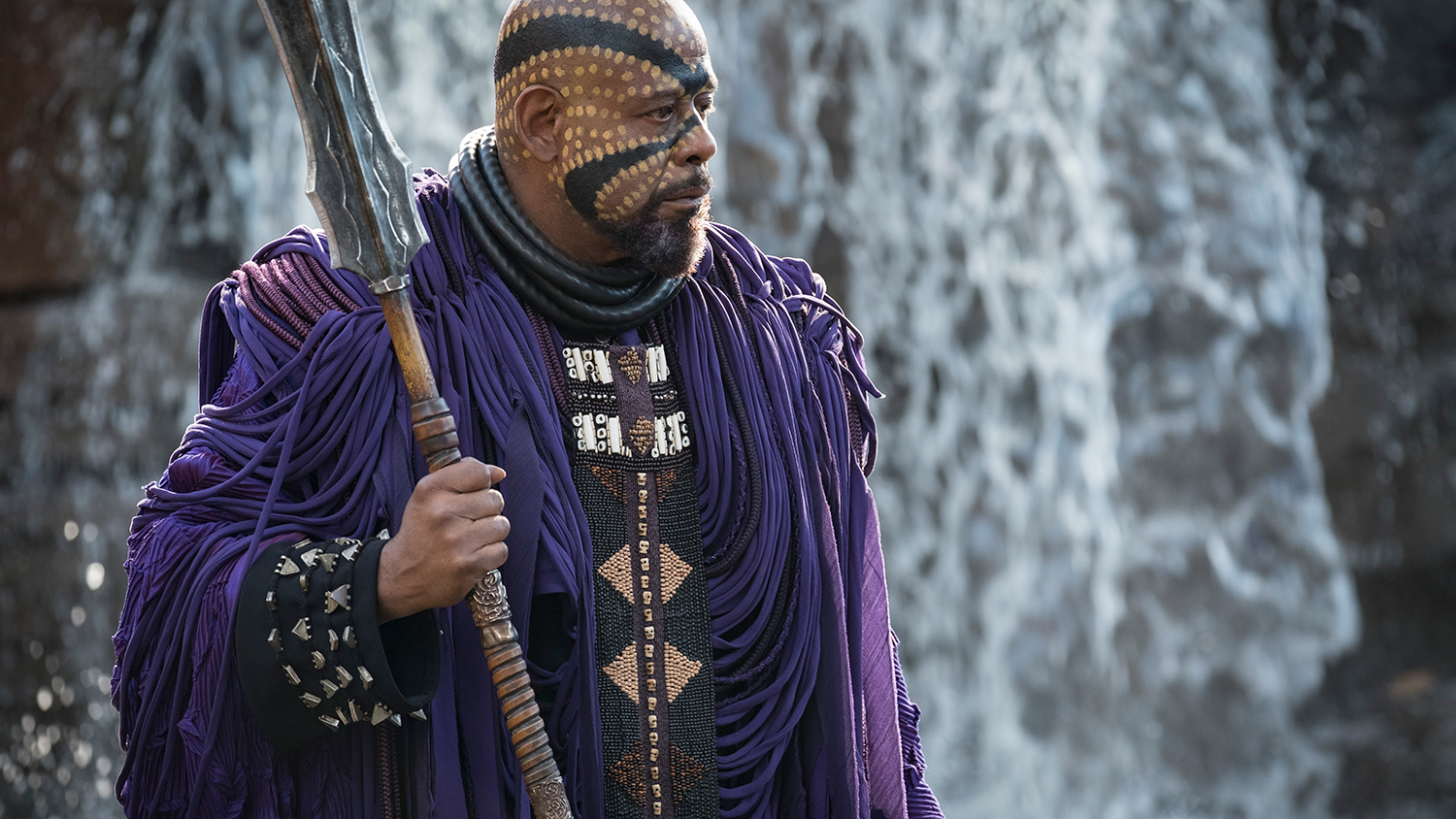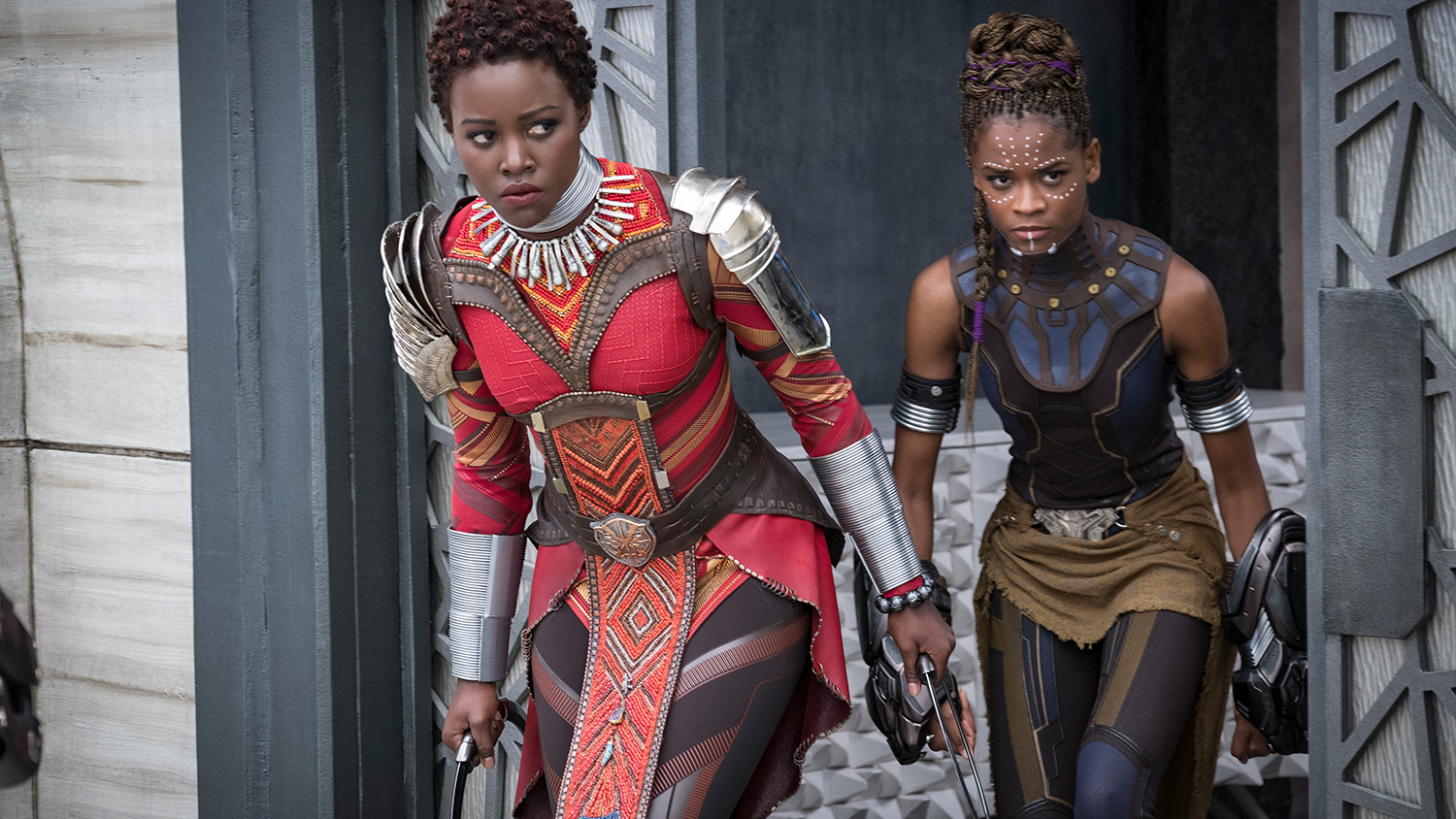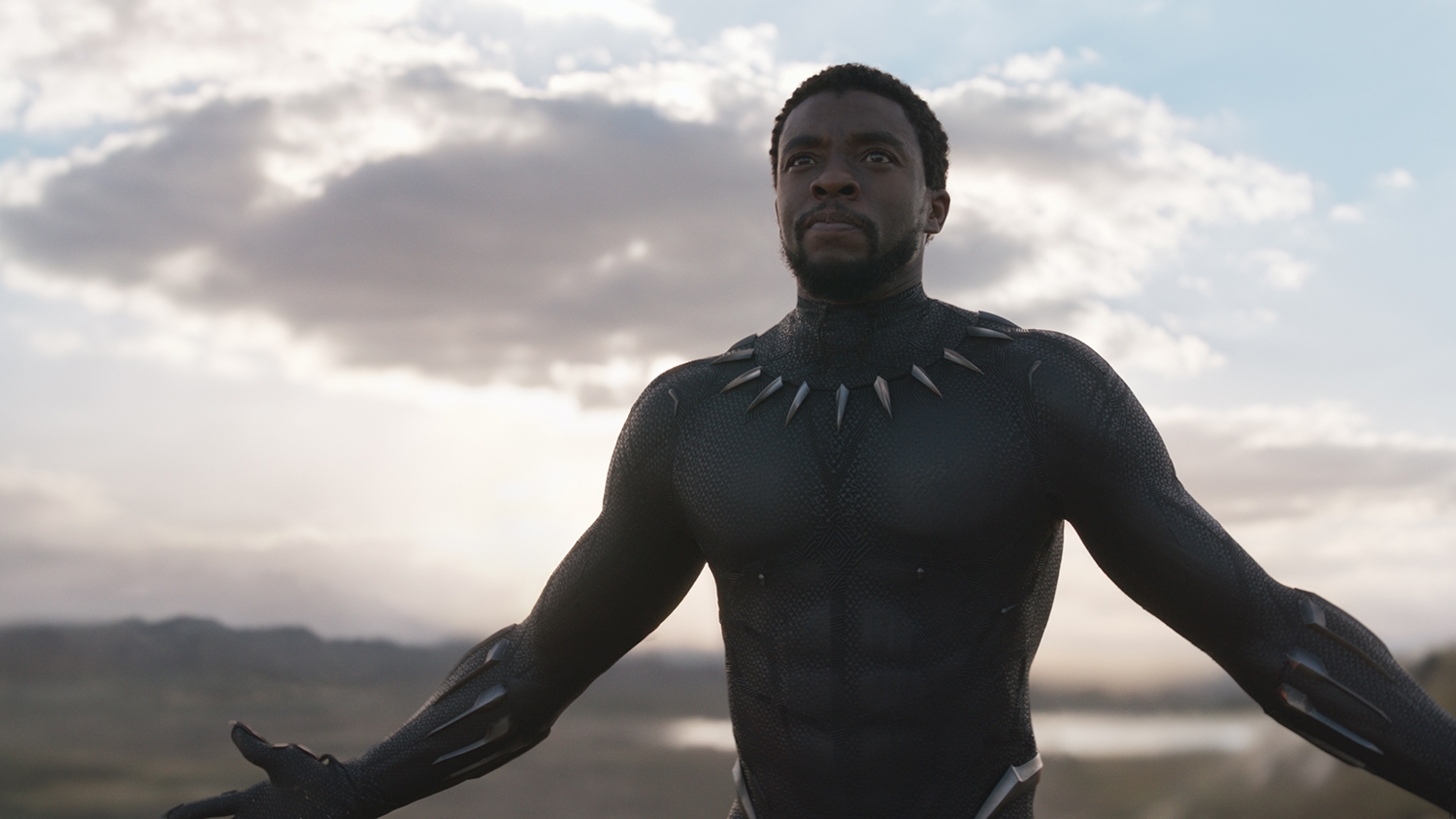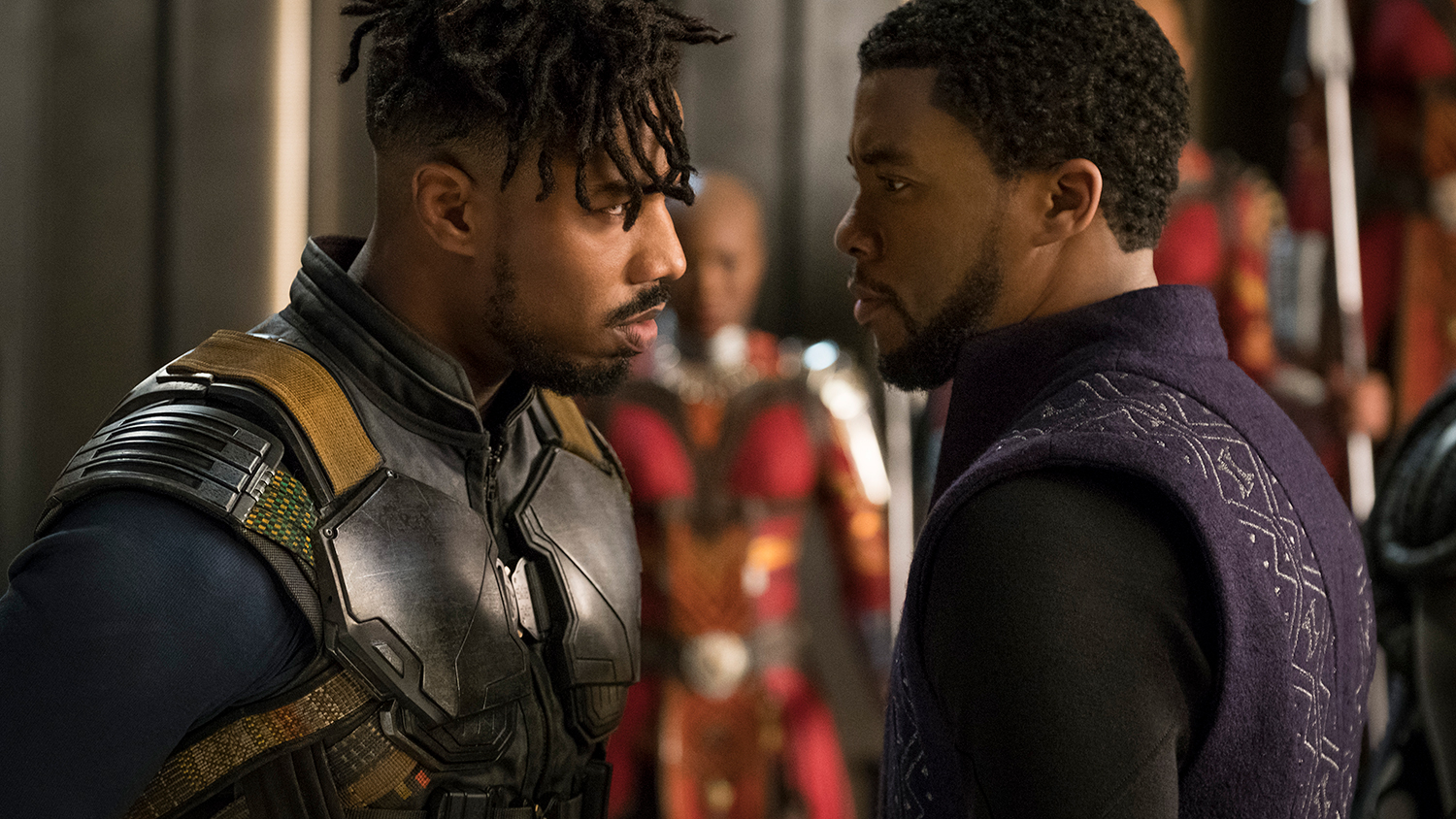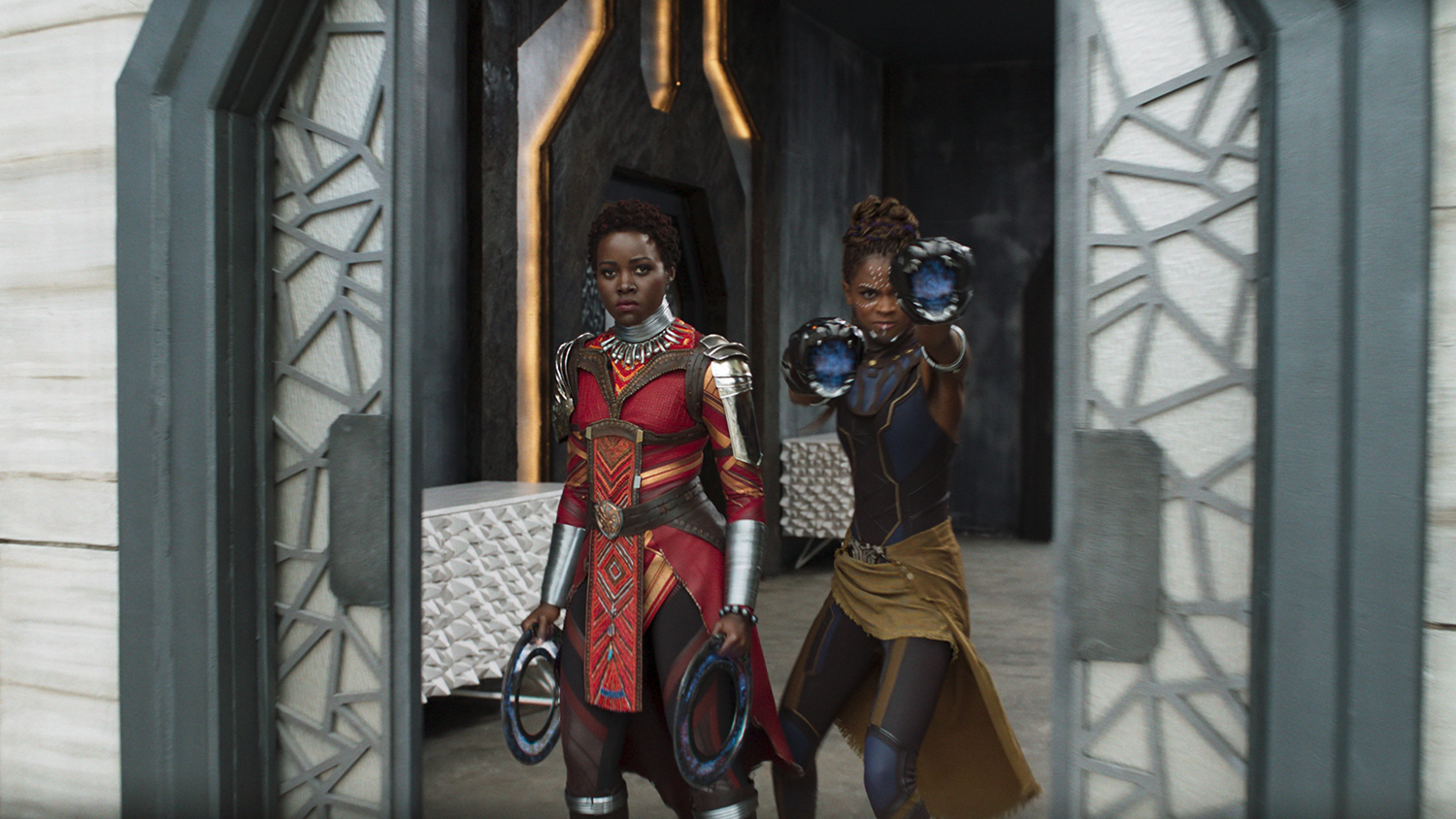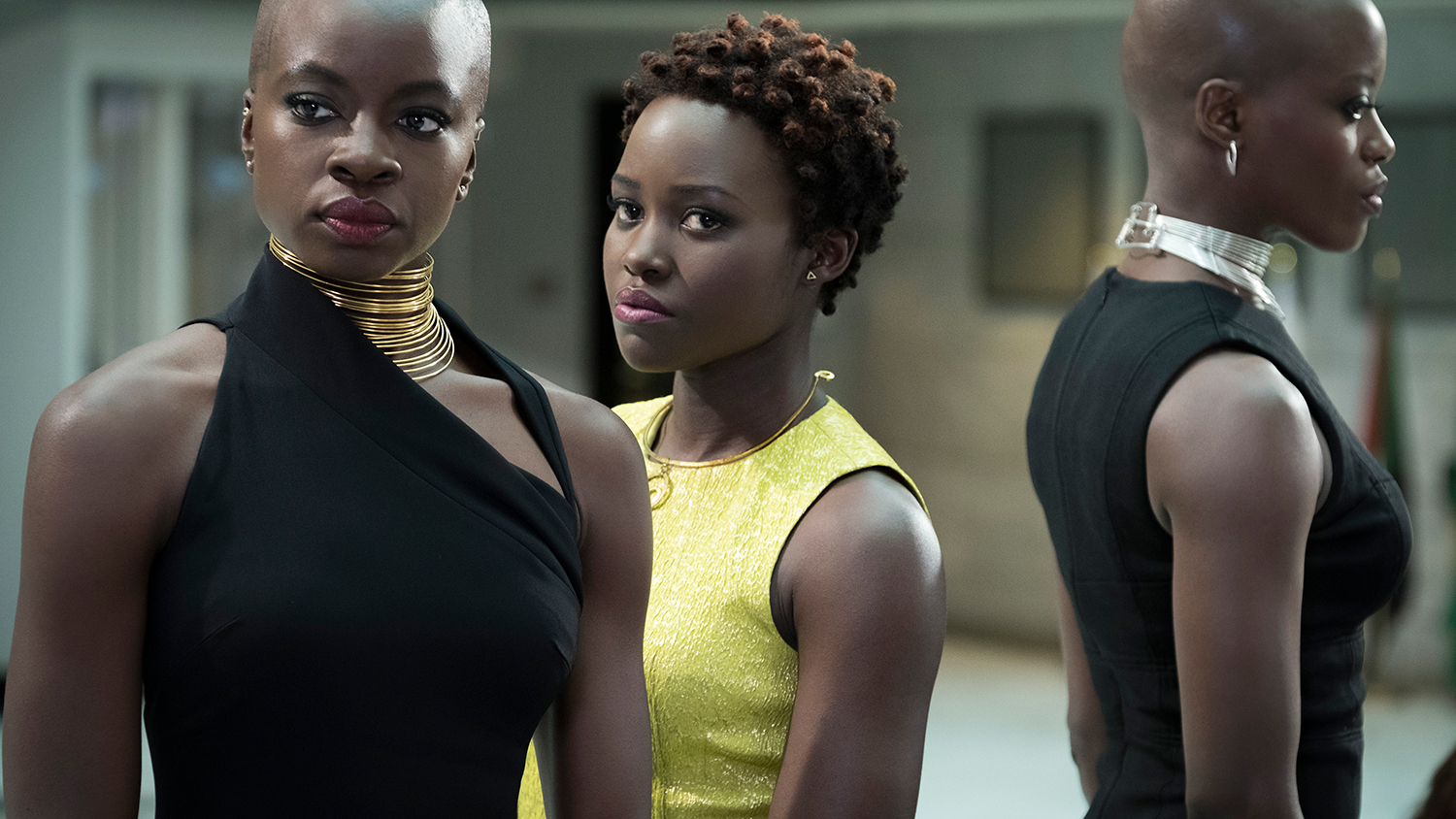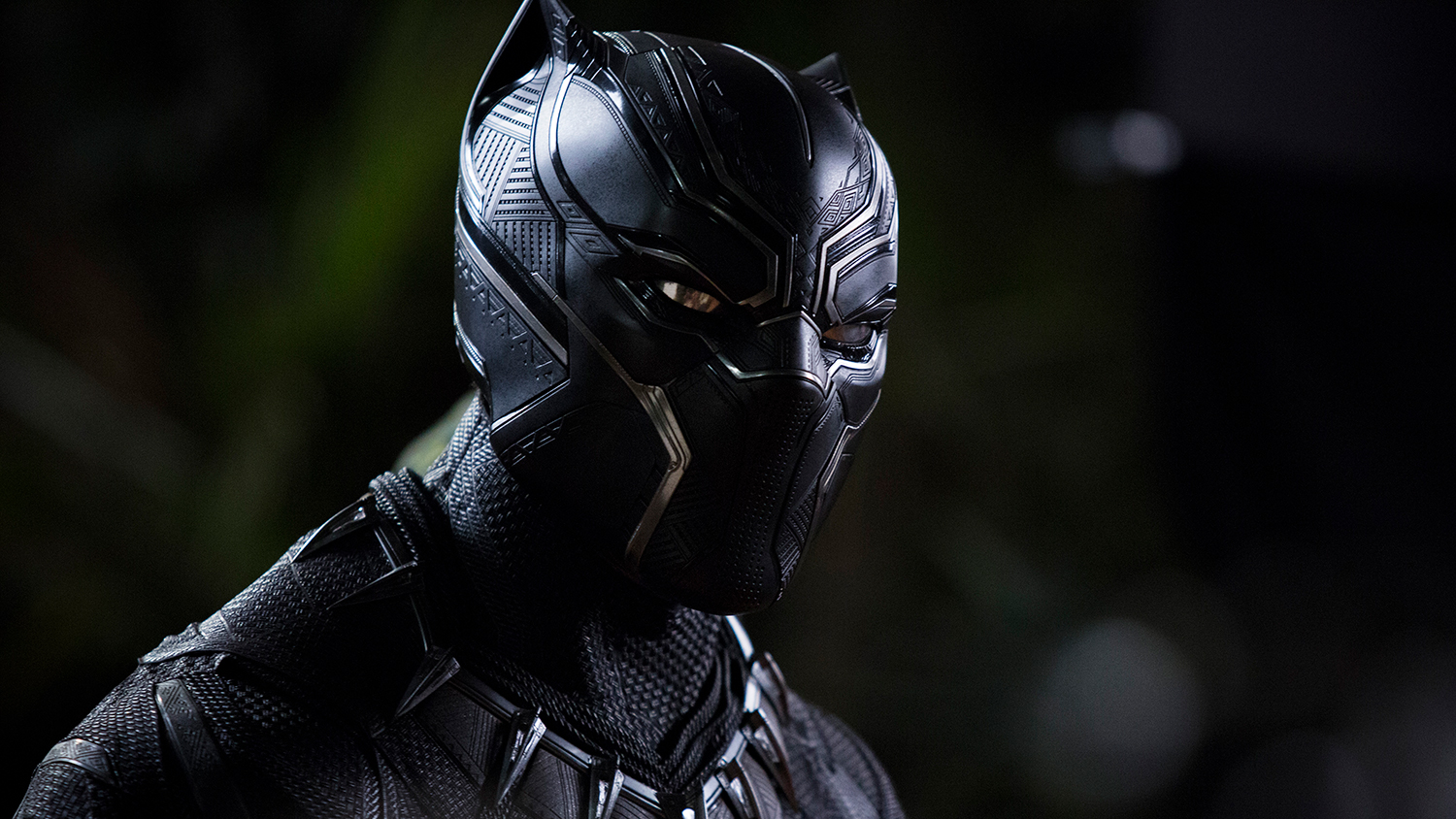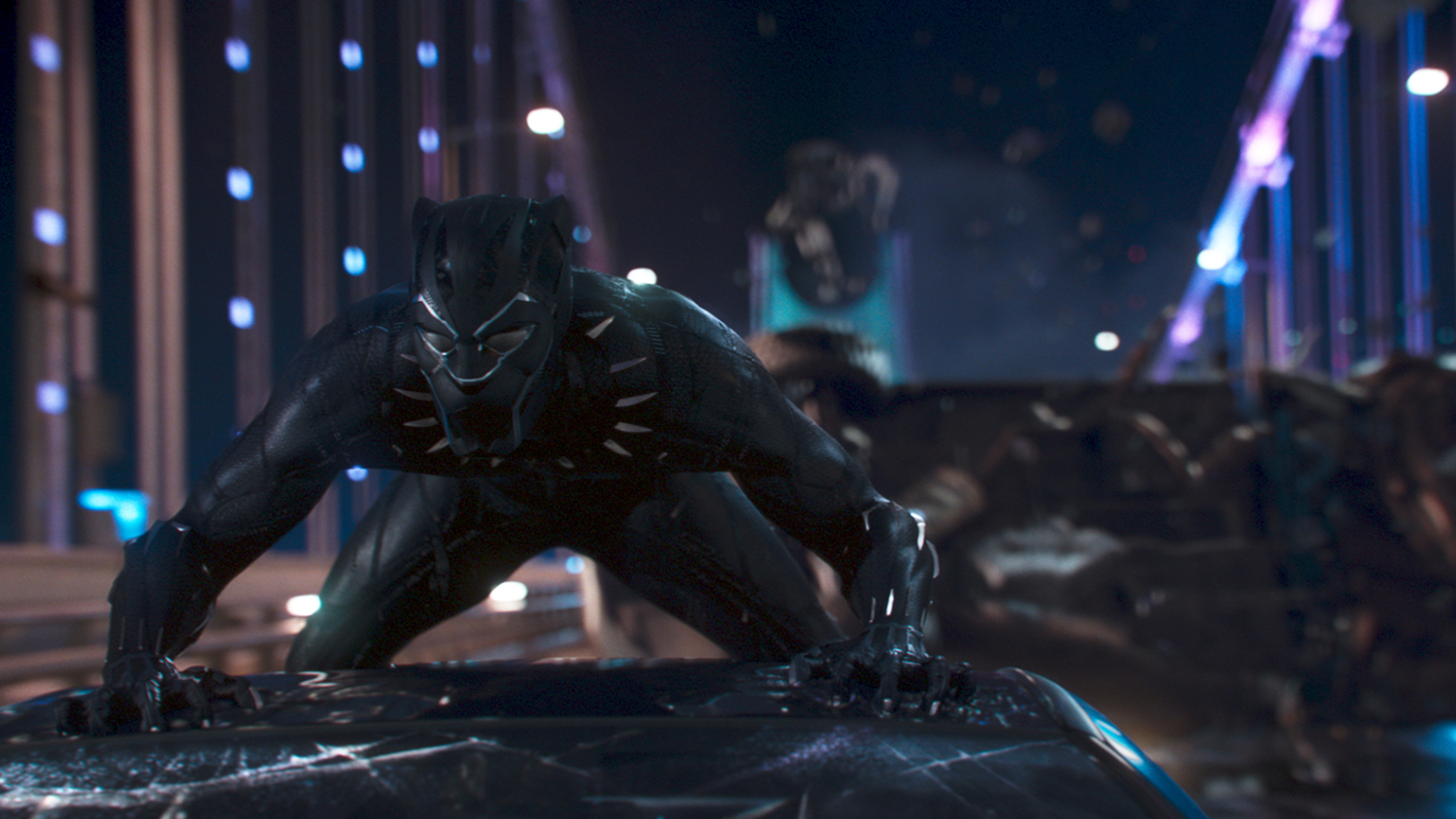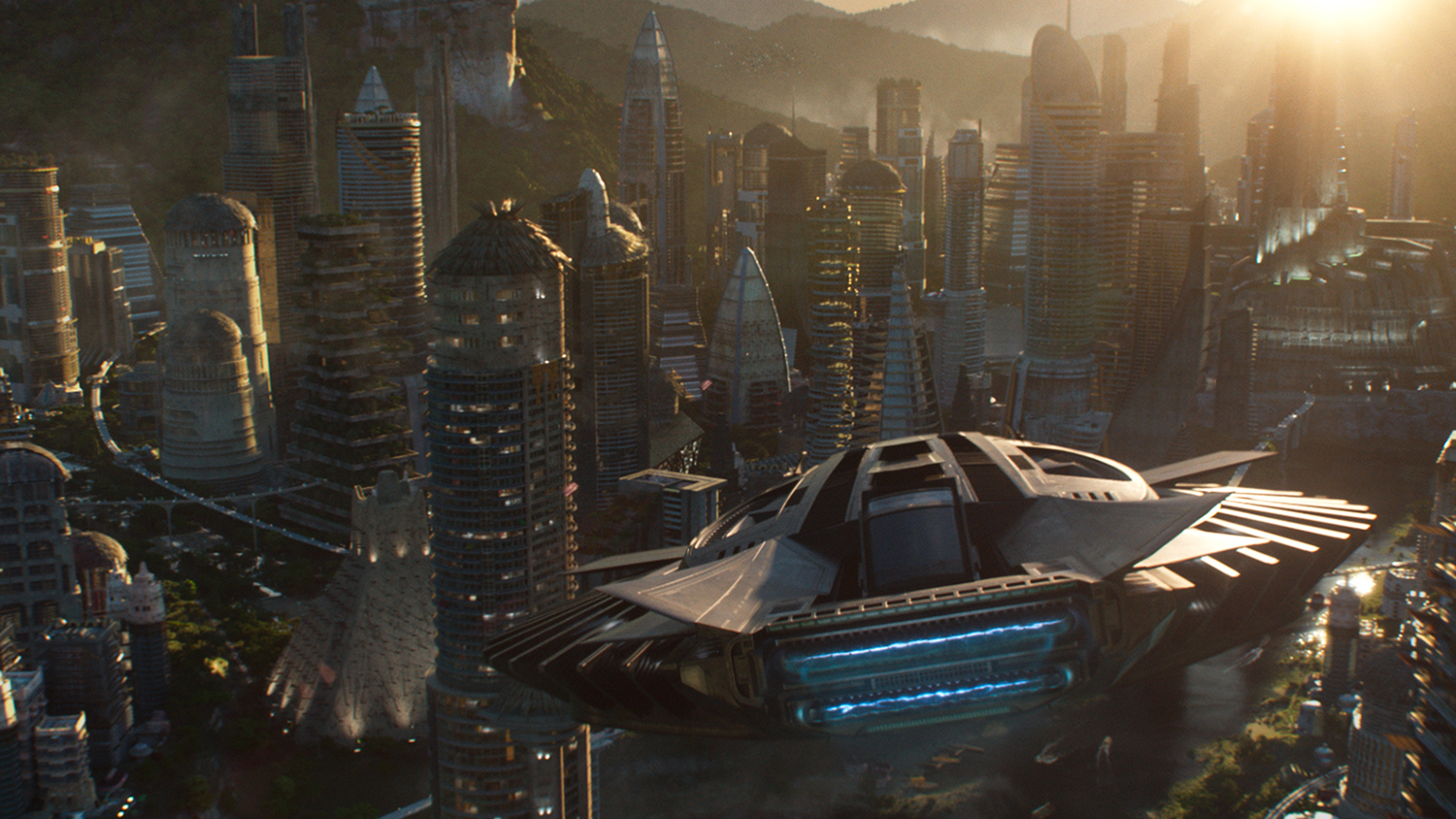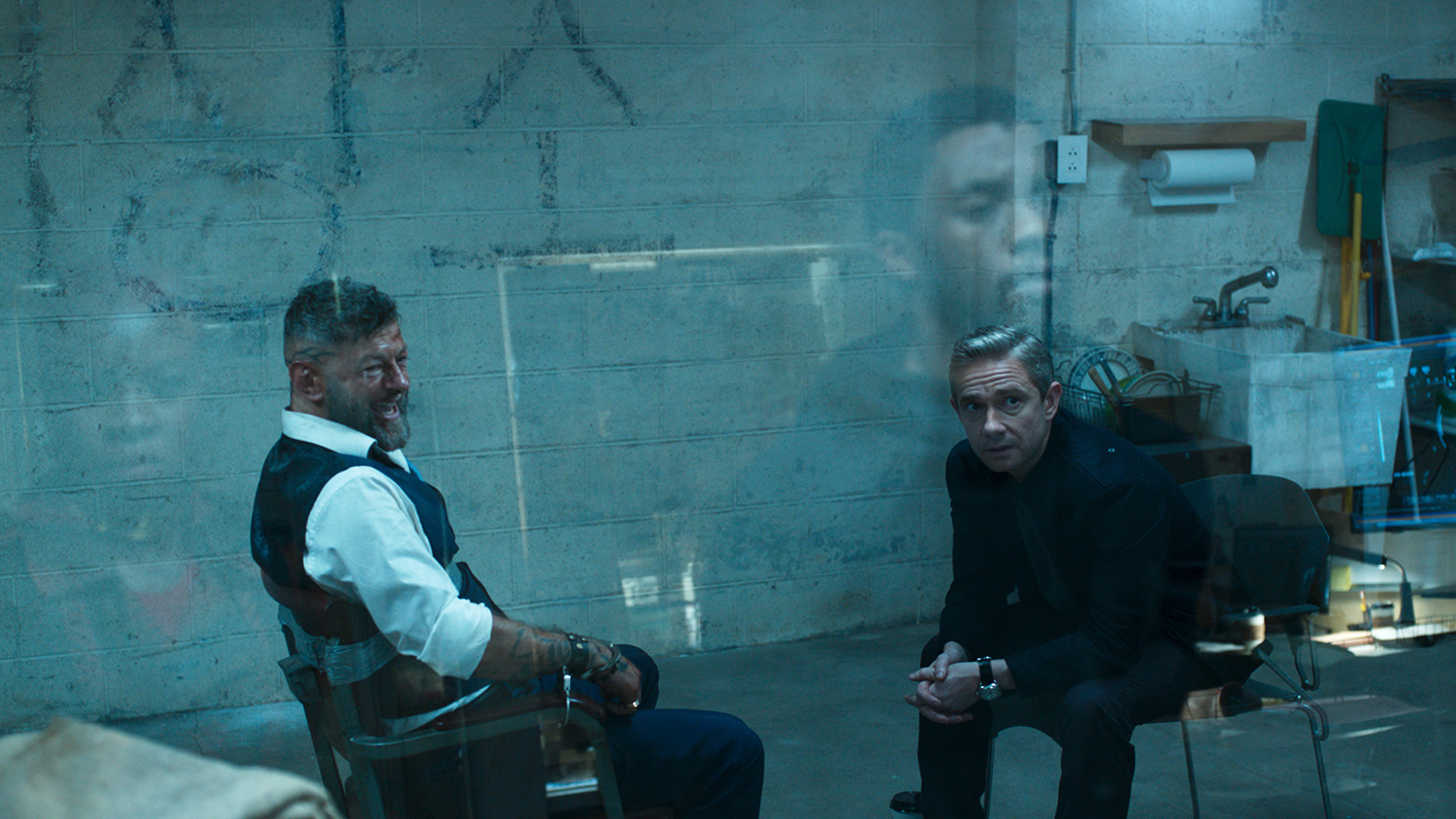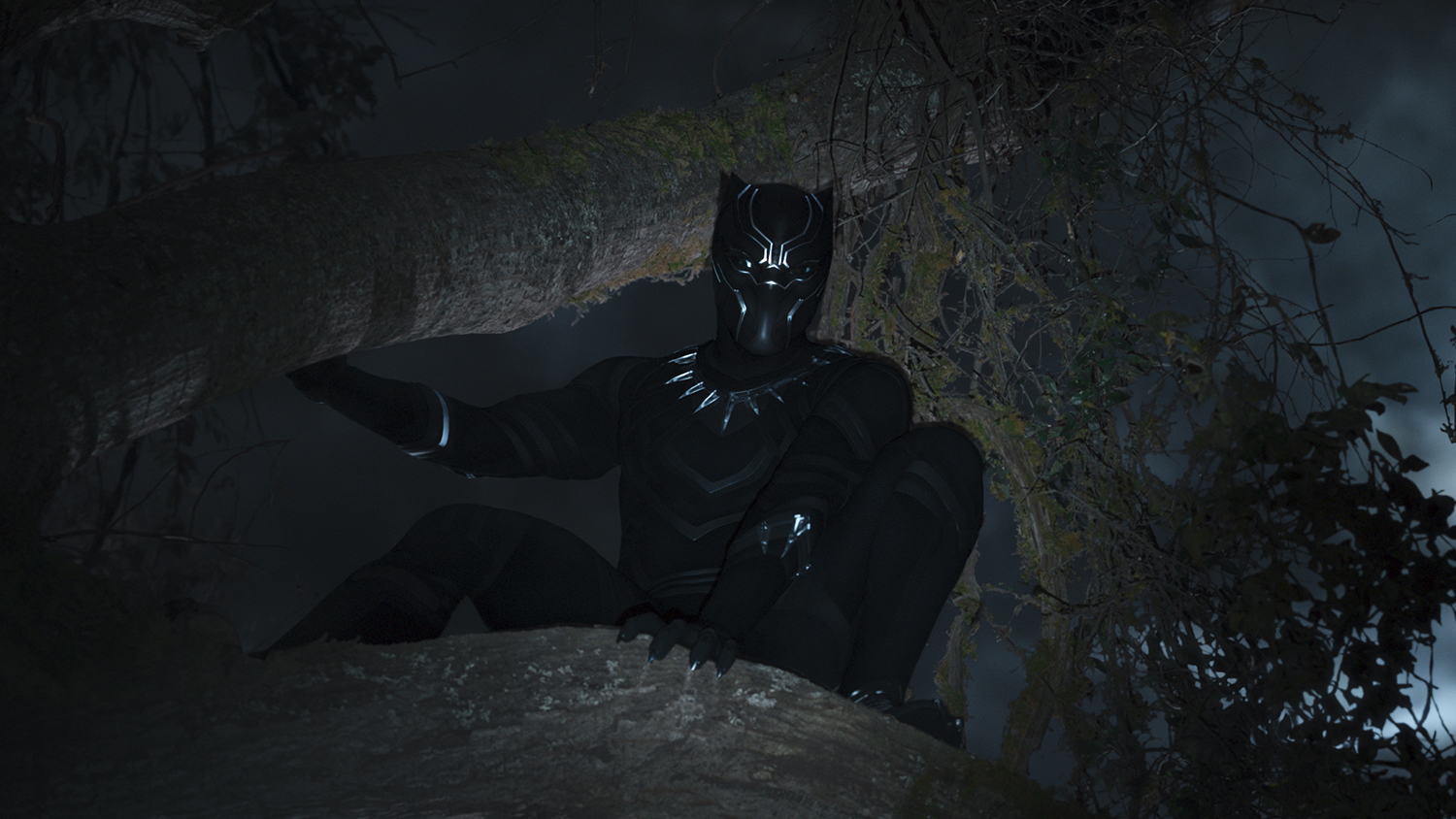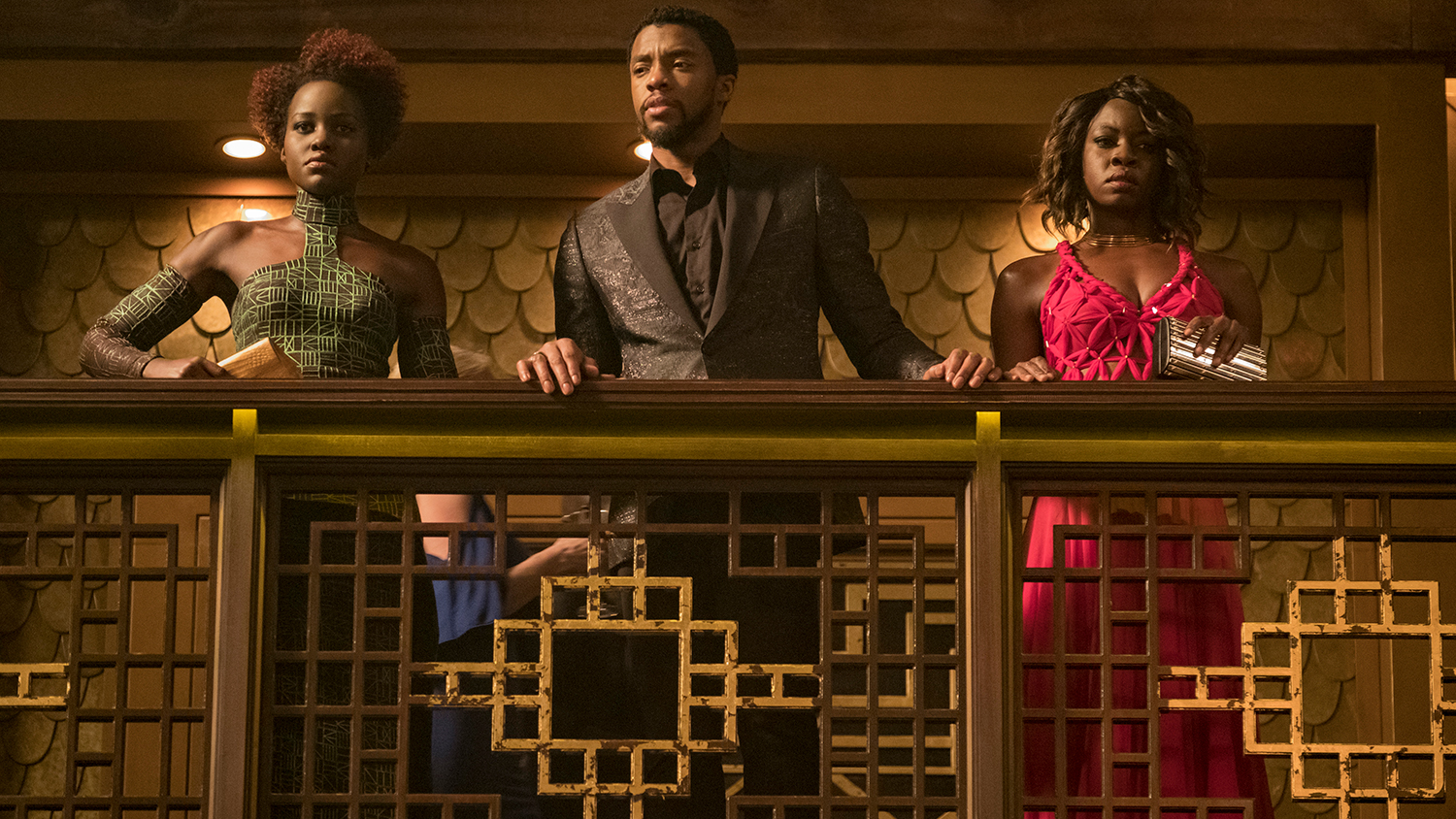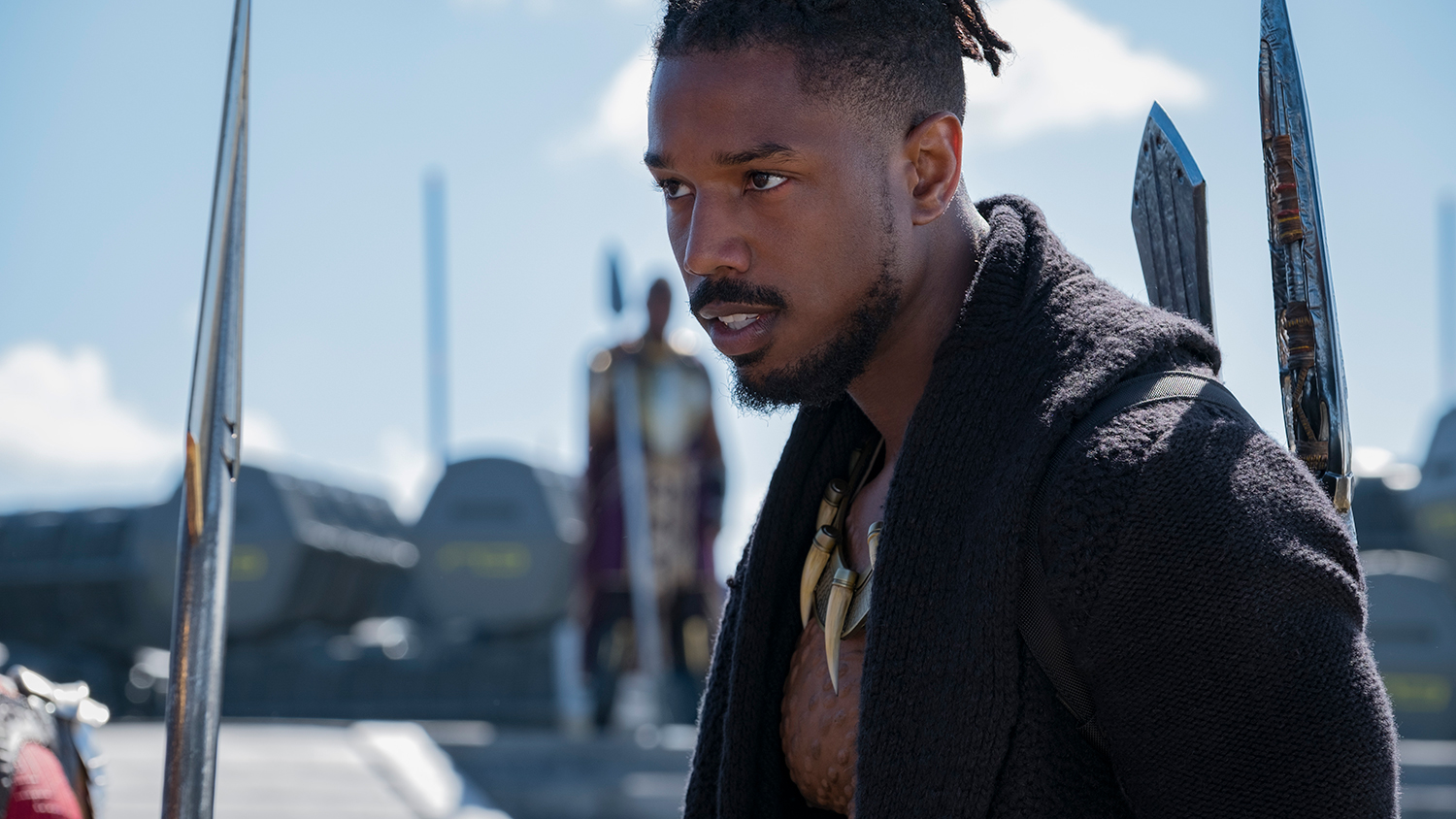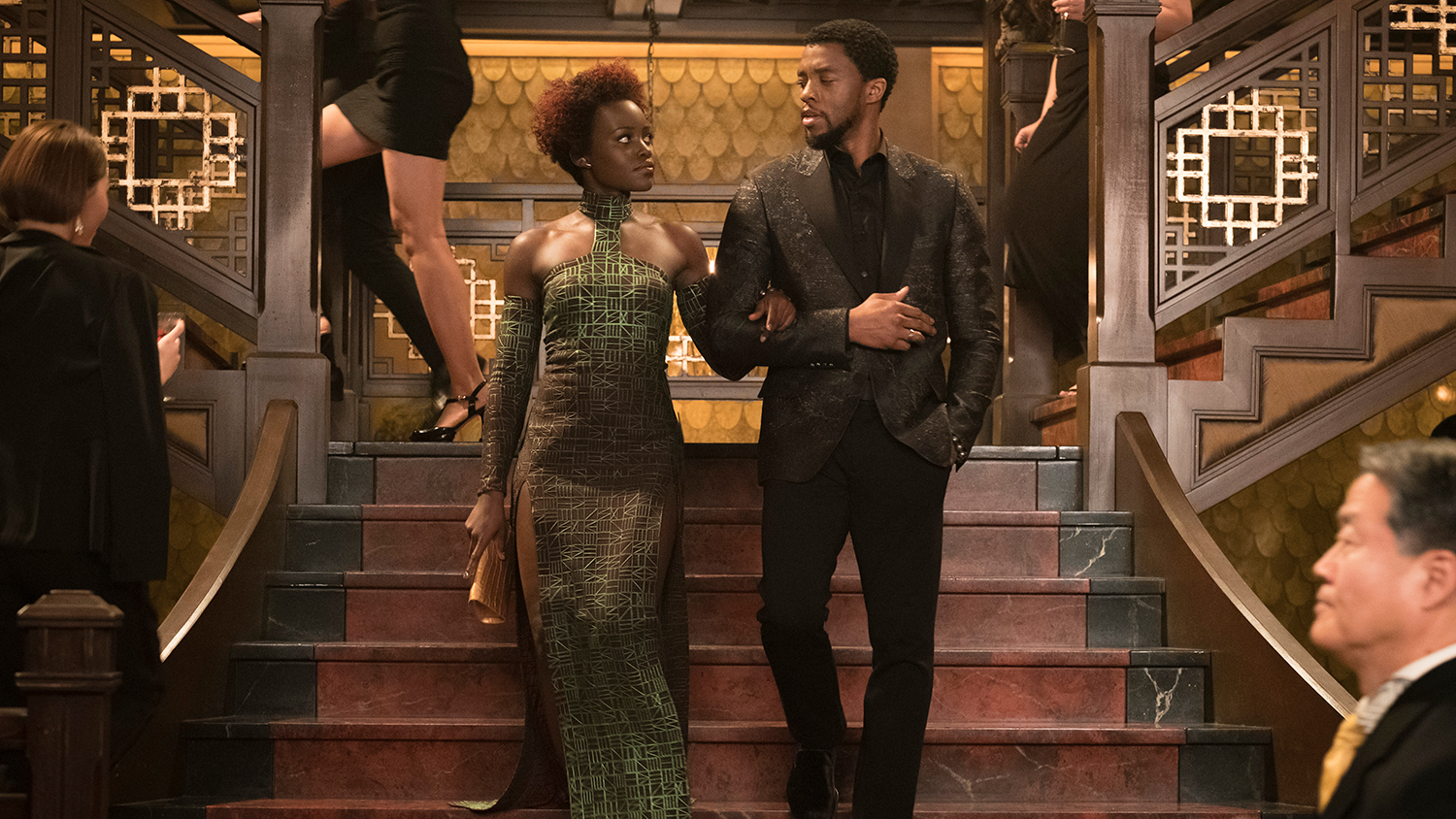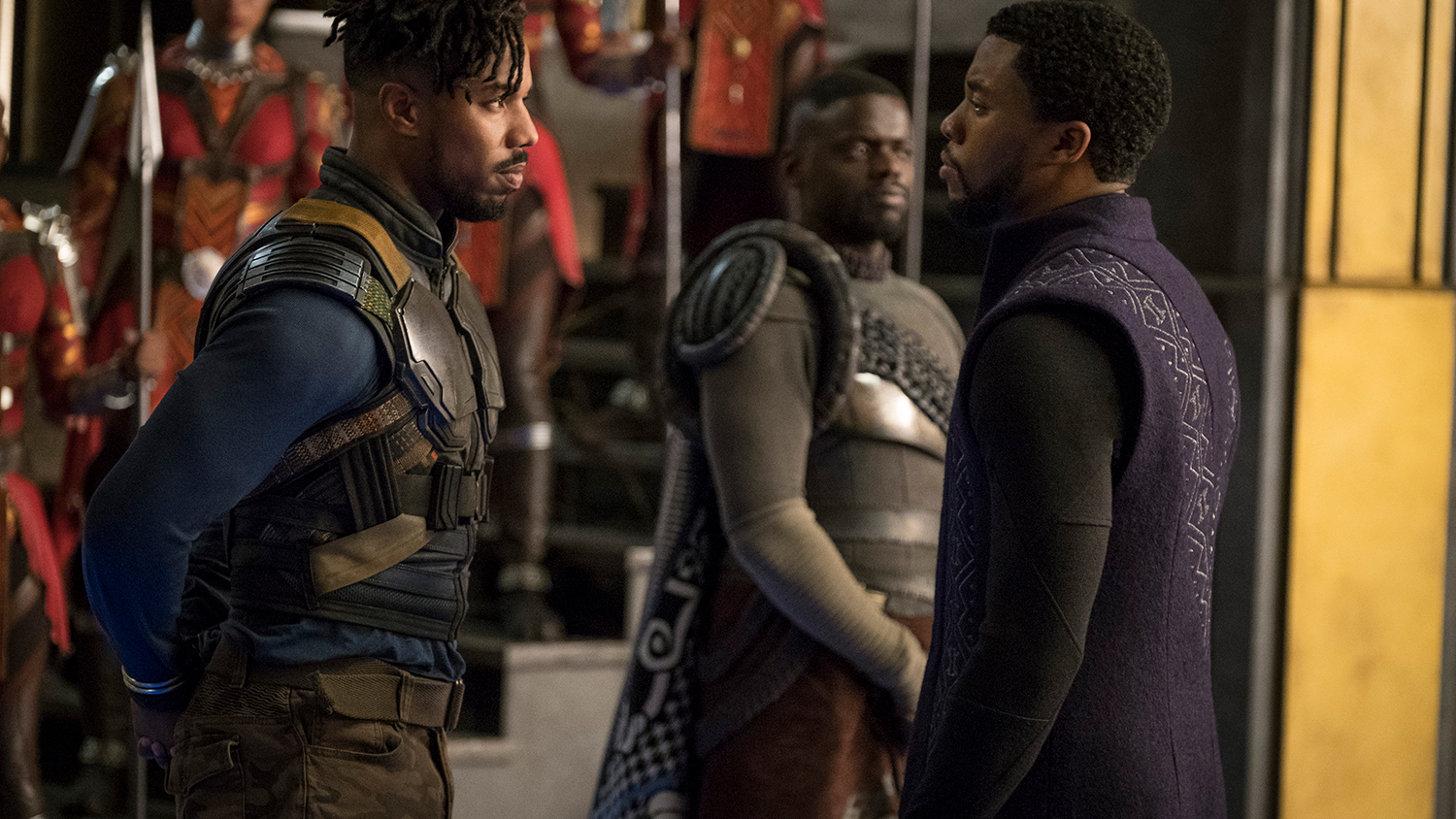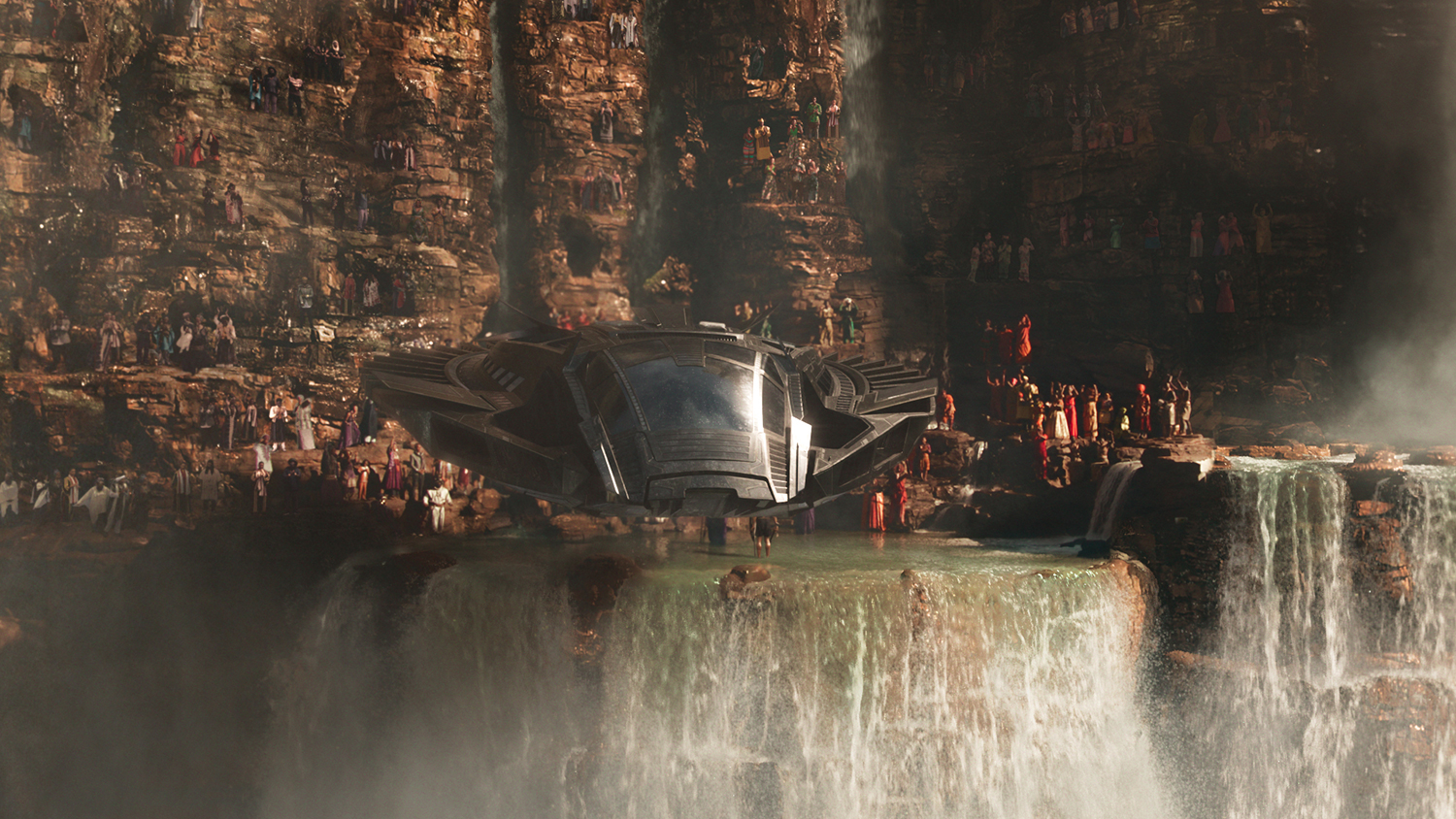It seems like every time a new Marvel Studios movie hits theaters, a debate ensues about where it ranks in the studio’s rapidly expanding cinematic universe. Black Panther is the latest project to find itself at the center of such a discussion, and while it isn’t a perfect film, what it does well is so unique and compelling that it deserves to be mentioned among the best of the studio’s big-screen adventures so far.
Directed by Creed filmmaker Ryan Coogler from a script by Coogler and Joe Robert Cole, Black Panther casts Chadwick Boseman as T’Challa, the heir to the throne of the African nation of Wakanda. A highly secretive and technologically advanced country, Wakanda is protected by its king, who assumes the mantle of the Black Panther when he takes the throne and partakes of a mysterious flower that gives him enhanced strength, speed, and other attributes. T’Challa soon finds his rule challenged by threats both external and internal, including the dangerous arms dealer Ulysses Klaue and a deadly stranger, Erik “Killmonger” Stevens, with a connection to Wakanda.
Although Boseman’s titular hero is the focus of the film, Black Panther is at its best when it leans on its excellent supporting cast.
Black Panther is a strong solo debut for Boseman, who was first introduced as the character in 2016’s Captain America: Civil War.
That Boseman made his debut as Black Panther in that film is fitting, as his first solo adventure in the role compares favorably to Chris Evans’ debut as the title character in 2011’s Captain America: The First Avenger. In each of their initial solo features, both actors manage to avoid letting their characters fall into the realm of caricature and comic book tropes, and find the nuance that makes them more than surface-level superheroes.
T’Challa is a particularly fascinating protagonist due to his role as the leader of his nation, its most prominent ambassador, and its greatest weapon, all rolled into one character. Boseman brings a sincerity to T’Challa’s struggle to reconcile the desire to protect Wakanda with his desire to forge a greater good in the world, and this sucks the audience into his struggle.
Although Boseman’s titular hero is the focus of the film, Black Panther is at its best when it leans on its excellent supporting cast.
Newcomer Letitia Wright, who plays T’Challa’s teenage sister and Wakanda’s resident tech expert, Shuri, is perhaps the biggest — and most pleasant — surprise of the film. Her performance makes every scene she’s in memorable, and she has a knack for adding something extra to every line of dialogue or gesture she delivers that adds punch to the moment without going overboard. In a cast packed with familiar faces and established veterans, Wright stands out in the crowd and will be a welcome addition to any future Marvel movies smart enough to include her.
As the film’s primary villains, Michael B. Jordan and Andy Serkis — who portray Killmonger and Ulysses Klaue, respectively — set similarly high bars with their performances.
Serkis takes full advantage of the long leash he’s given for Klaue this time around, and delivers a villain that’s as sinister as he is funny. It’s the sort of performance that makes it increasingly frustrating that we don’t see more of Serkis on-screen and outside of motion-capture roles, as Klaue could have easily been a forgettable, generic villain without Serkis’ wildly entertaining investment in the character.
The flaws of Black Panther are fairly minor compared to the many things the film gets right.
With Killmonger, Jordan delivers a great counterpoint to Boseman’s portrayal of T’Challa, and explores some surprisingly complicated themes with an impressive amount of depth in his performance. Jordan makes it easy to sympathize with Killmonger one minute, only to pull the rug out in the next moment and leave the audience reeling. There’s a terrifying level of calmness and certainty of purpose in the way he enacts his plans, and Jordan clearly relishes playing a villain after a string of films that cast him in cheer-worthy protagonist roles.
The remainder of the film’s cast is filled out with a mix of veteran actors, rising stars, and otherwise familiar faces that all hold up their roles well without a noticeably weak performance among them. Whether it’s Forest Whitaker and Angela Bassett playing members of the Wakandan royalty or Lupita Nyong’o and Daniel Kaluuya playing members of T’Challa’s inner circle, the characters in Black Panther are put in capable hands and the actors’ performances more than measure up to the trust placed in them.
If there’s one area in which Black Panther falls a bit short, it’s a problem that has occasionally popped up in previous Marvel movies: When it comes to action scenes that lean into computer-generated effects, the film’s reach occasionally exceeds its grasp.
On more than one occasion, the action sequences in Black Panther veered a little too far into the CG realm — particularly in the film’s climactic battle — so much so that it’s a little frustrating, given how immersive the rest of the movie can be. Although Black Panther is ostensibly an action movie, the characters feel more authentic in the film’s grounded, dialogue-driven moments than they do when jumping, flipping, and swinging around the environment.
Still, the flaws of Black Panther are fairly minor compared to the many things the film gets right — not the least of which is a surprisingly overt exploration of some complicated social and political issues. Marvel’s movies aren’t exactly known for tackling controversial subject matter (Civil War even managed to avoid venturing too deep into the socio-political weeds the story is rooted in), but Black Panther doesn’t shy away from challenging its audience to consider the obligations of wealthy nations to the rest of the world, for example, or whether one’s national identity supercedes one’s sense of social responsibility.

And yet somehow Black Panther still manages to be a fun, fantastic adventure in a brightly colored world filled with heroes and villains.
It takes a deft touch to bring out the best of so many elements that make up a film, and in doing so, avoid having the entire film collapse under the weight of everything it offers its audience. Black Panther is a testament to the skills of Coogler and the film’s talented cast, who make it look far too easy to make such an ambitious, unique film.
Whether Black Panther is ultimately judged to be one of Marvel’s best films — either critically or commercially — is almost inconsequential at this point. Coogler has crafted a film that transcends its genre and pushes the boundaries of what we can (and should) expect from Marvel’s cinematic universe, and the superhero movie landscape as a whole is better for it.
